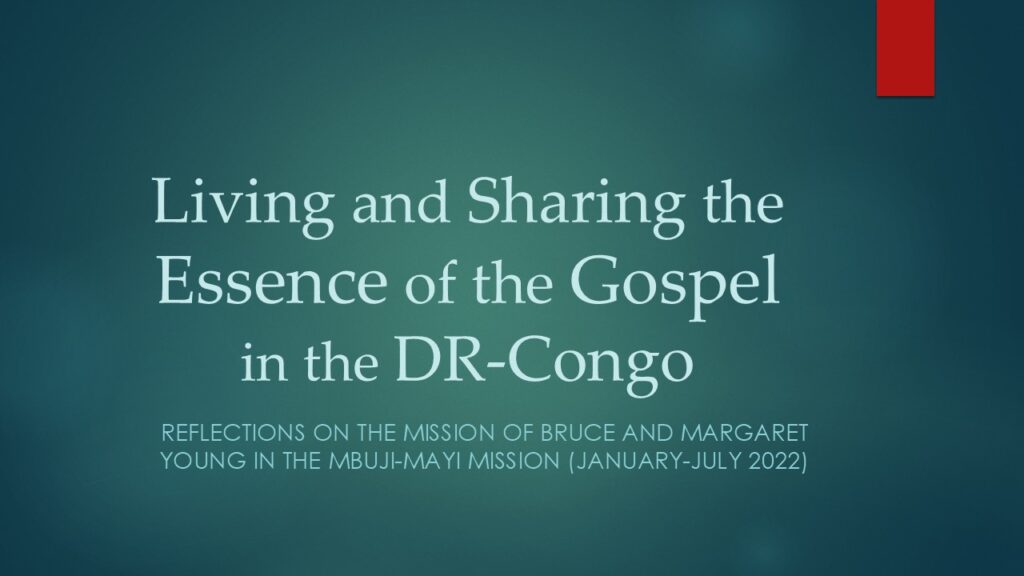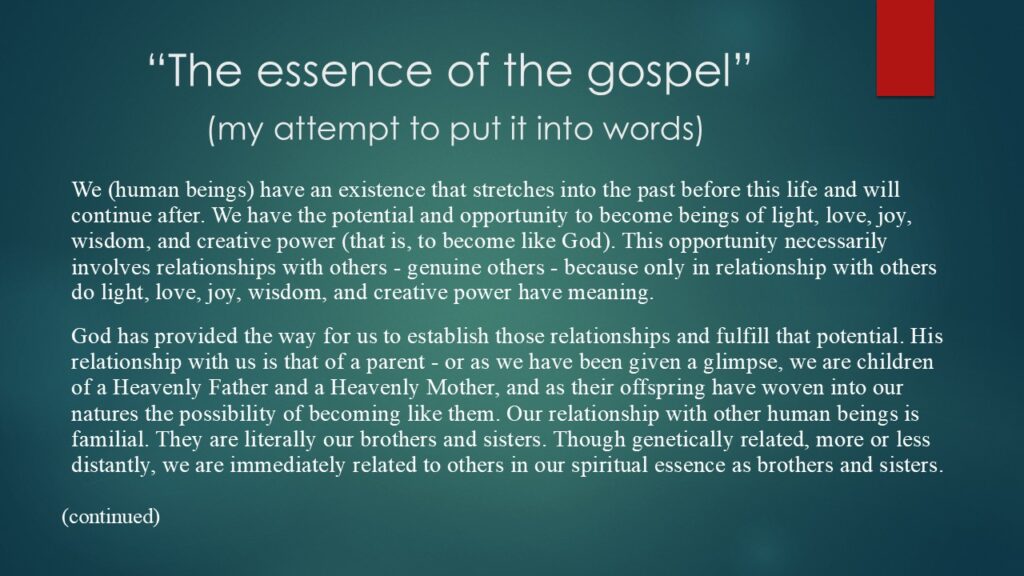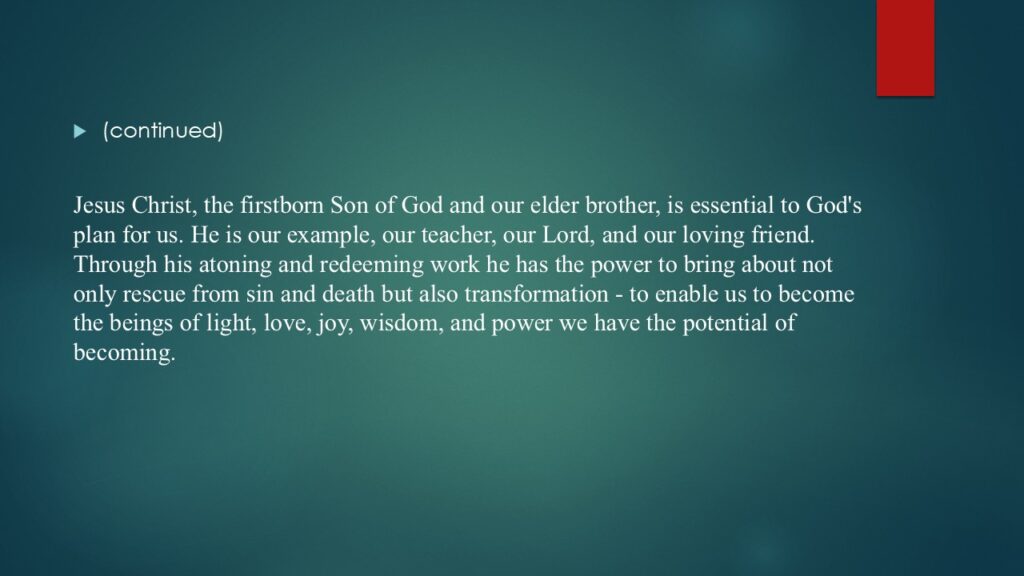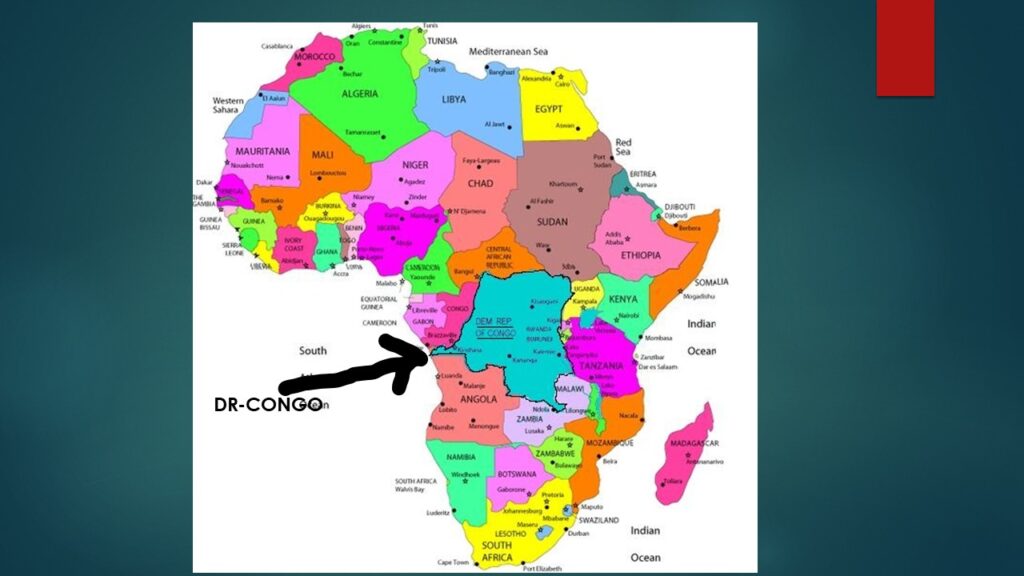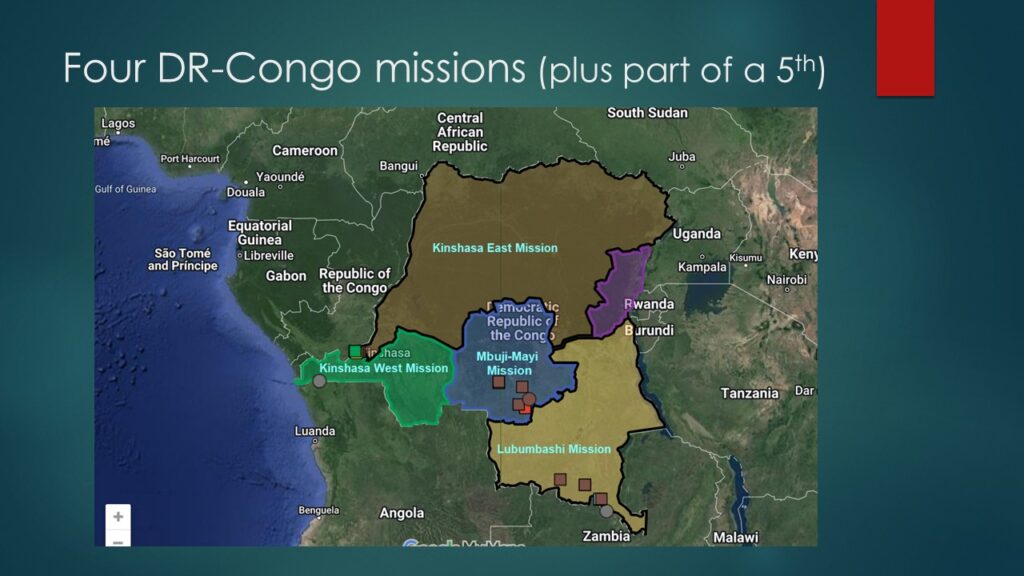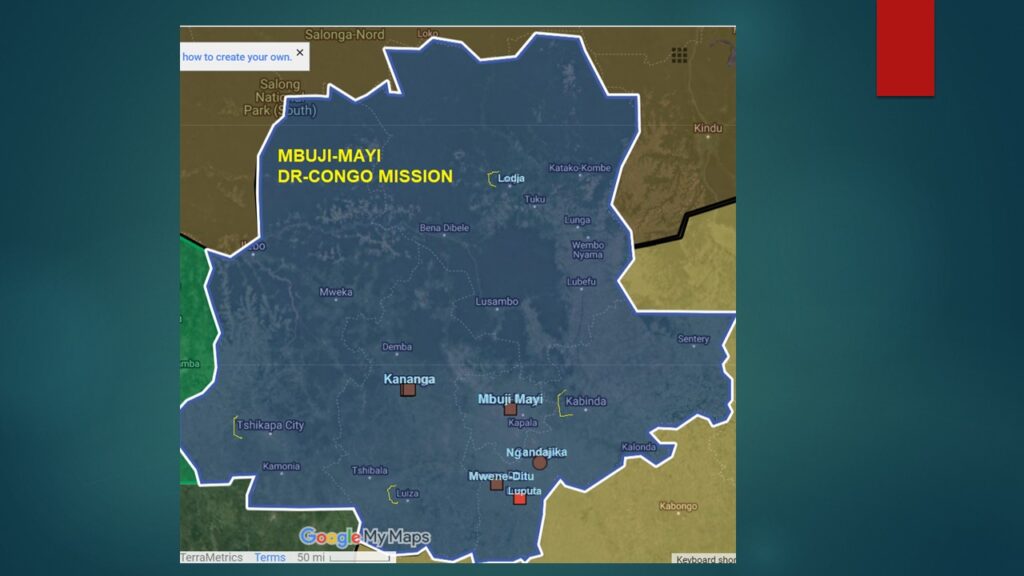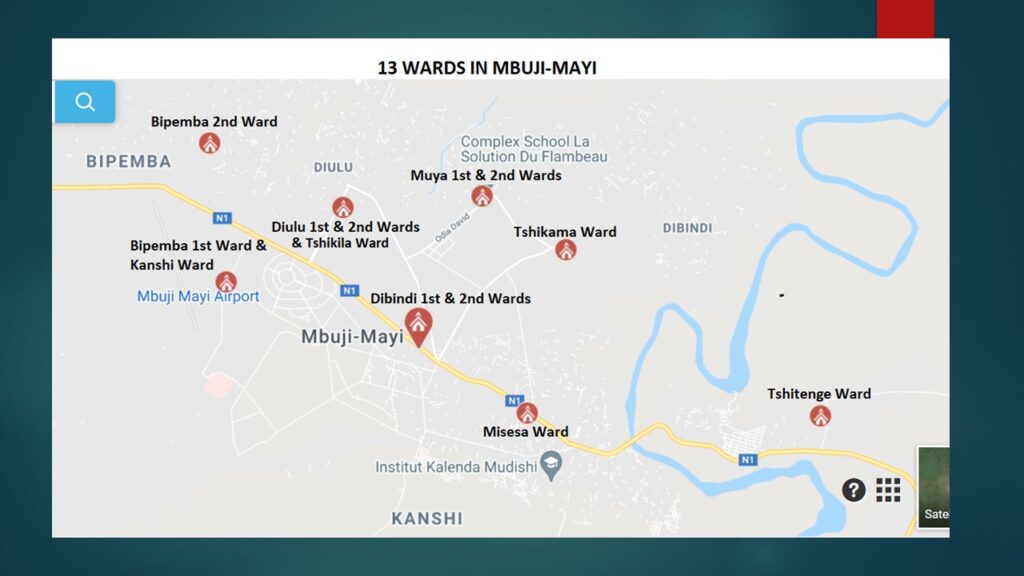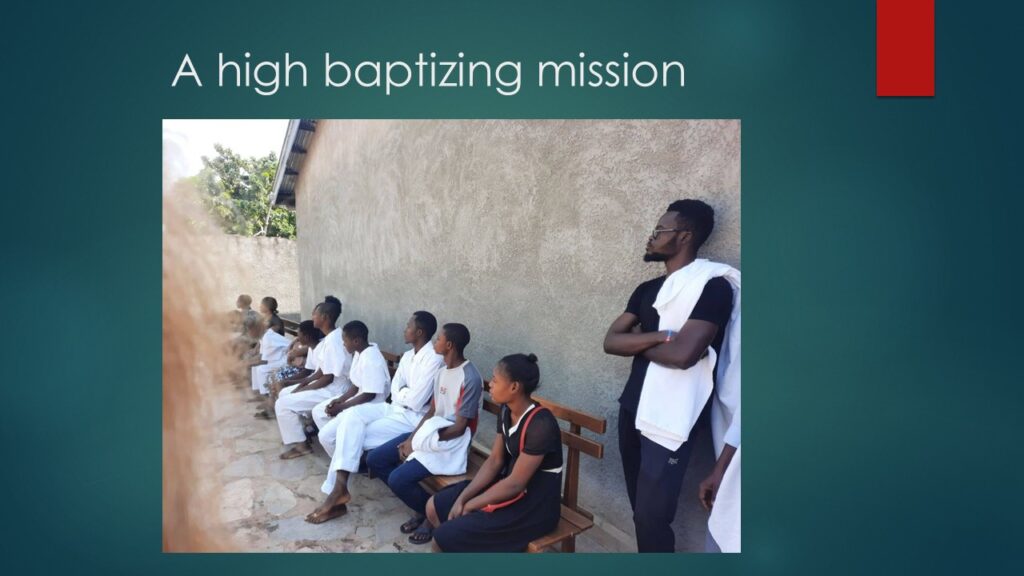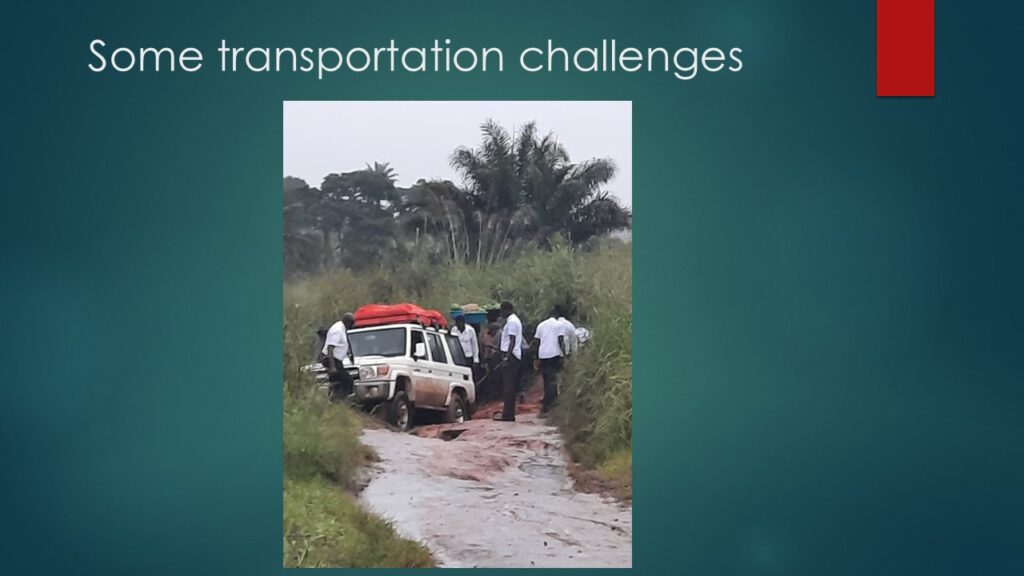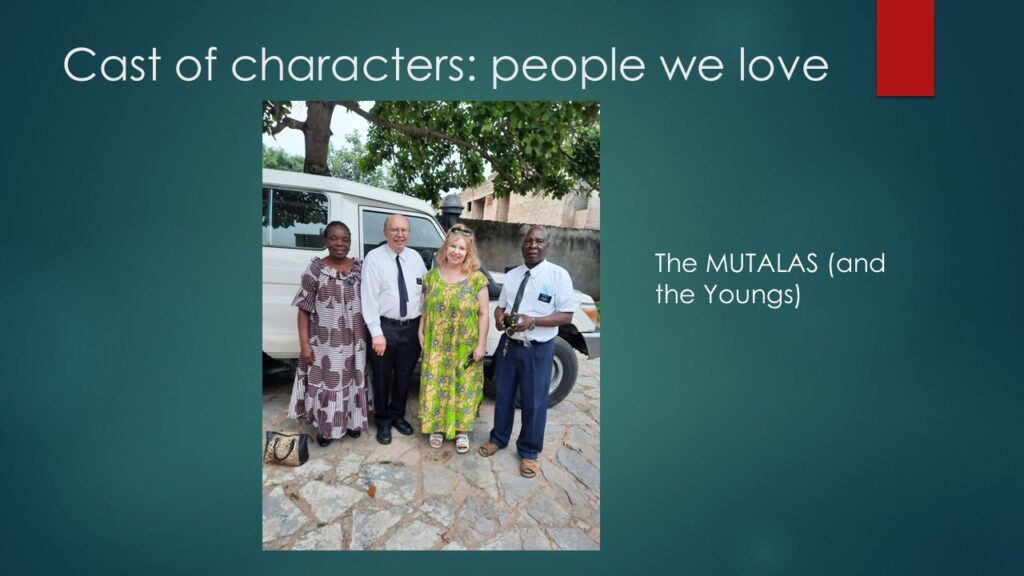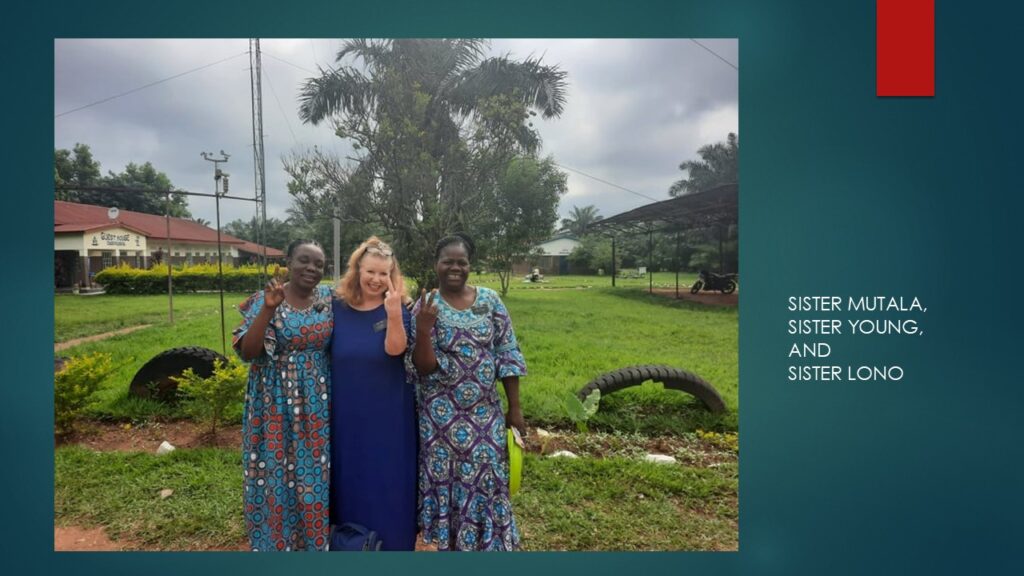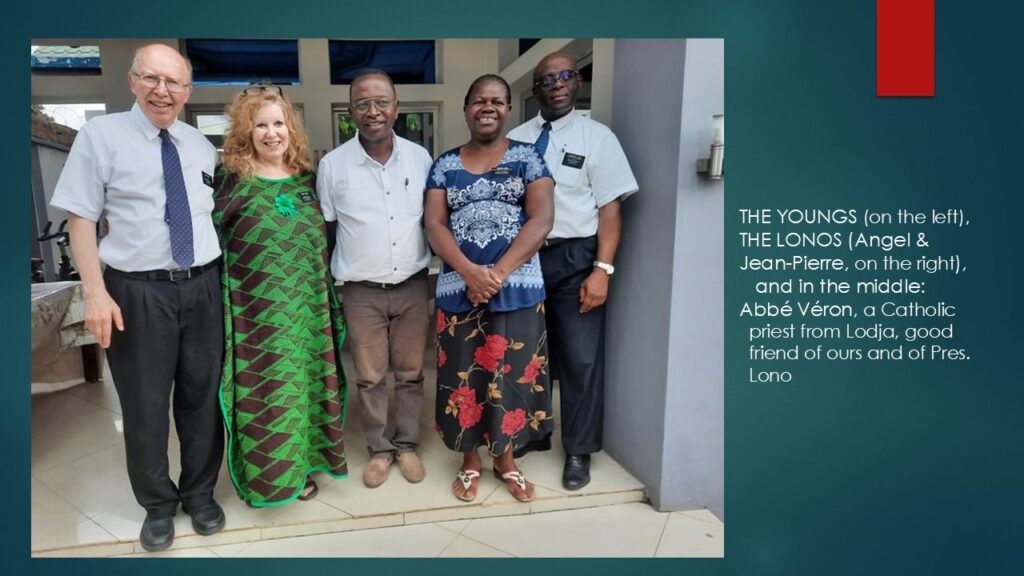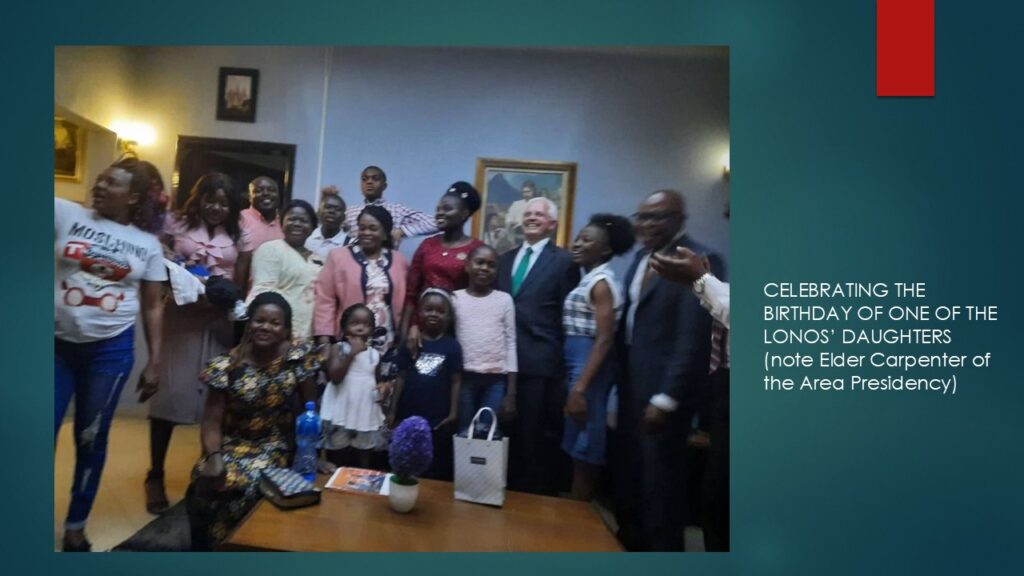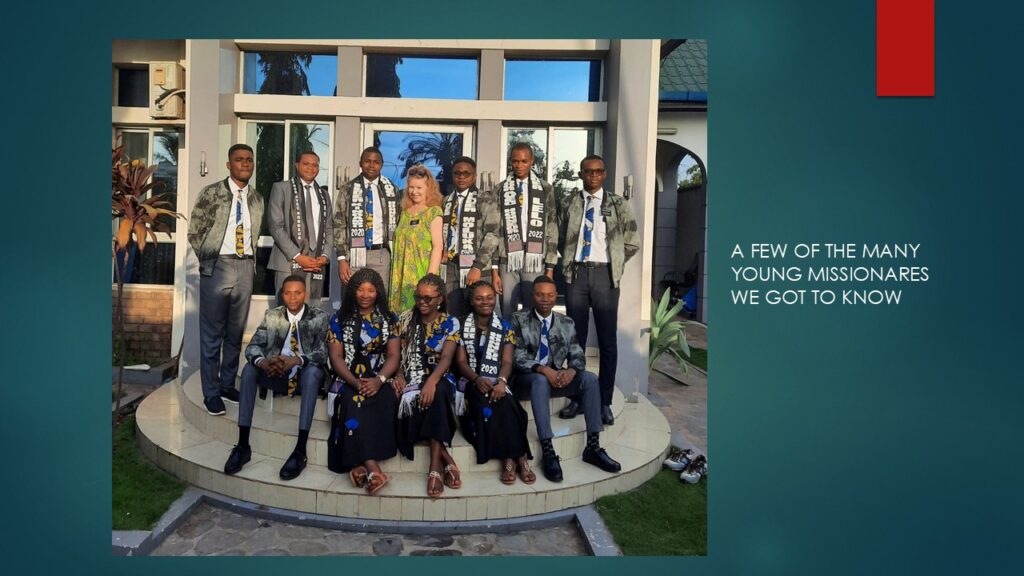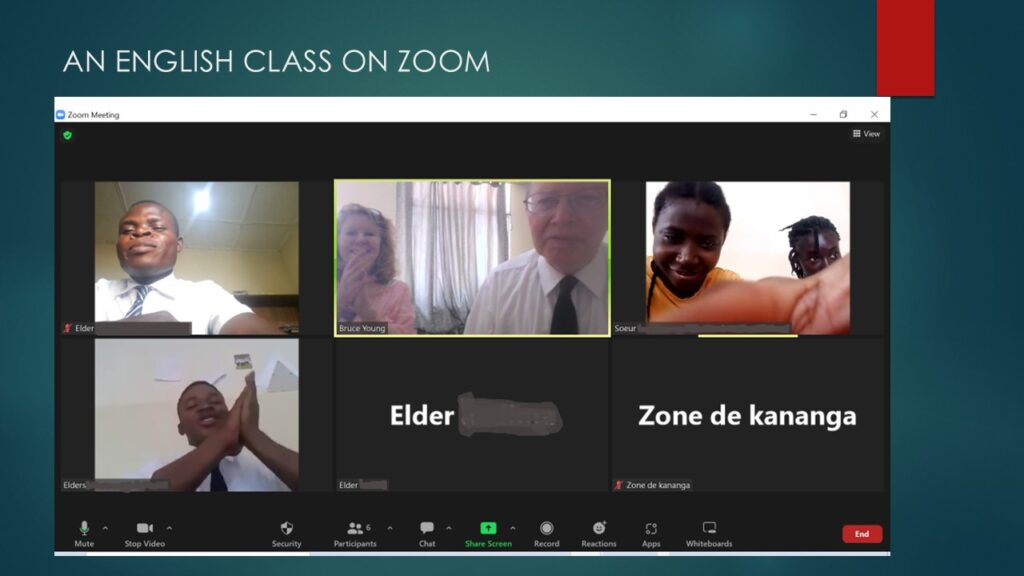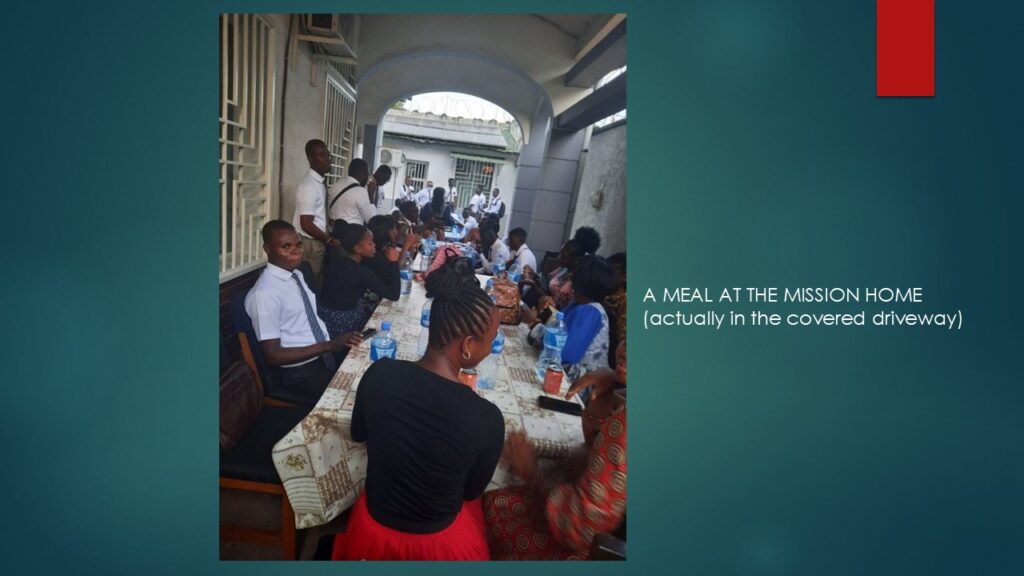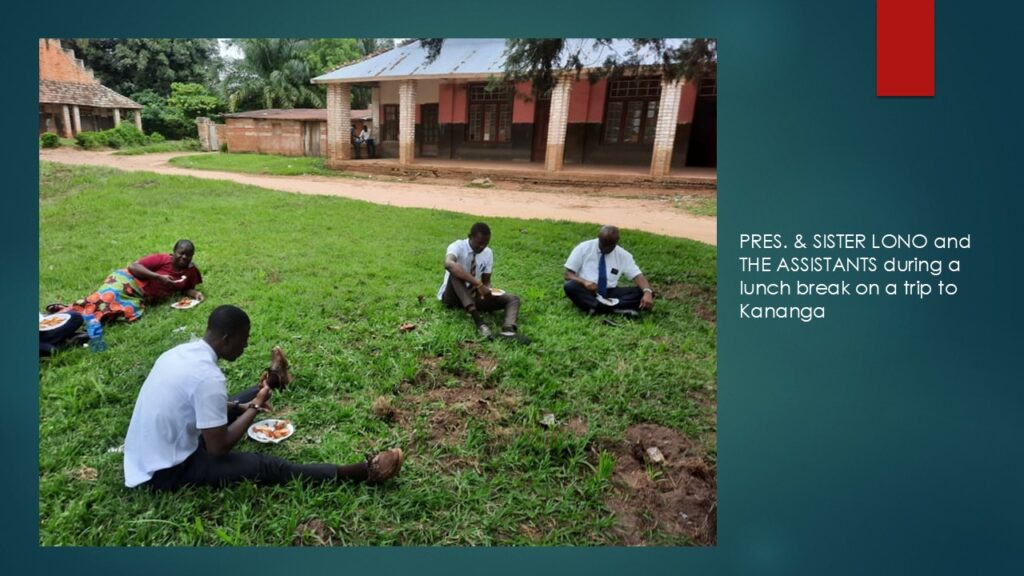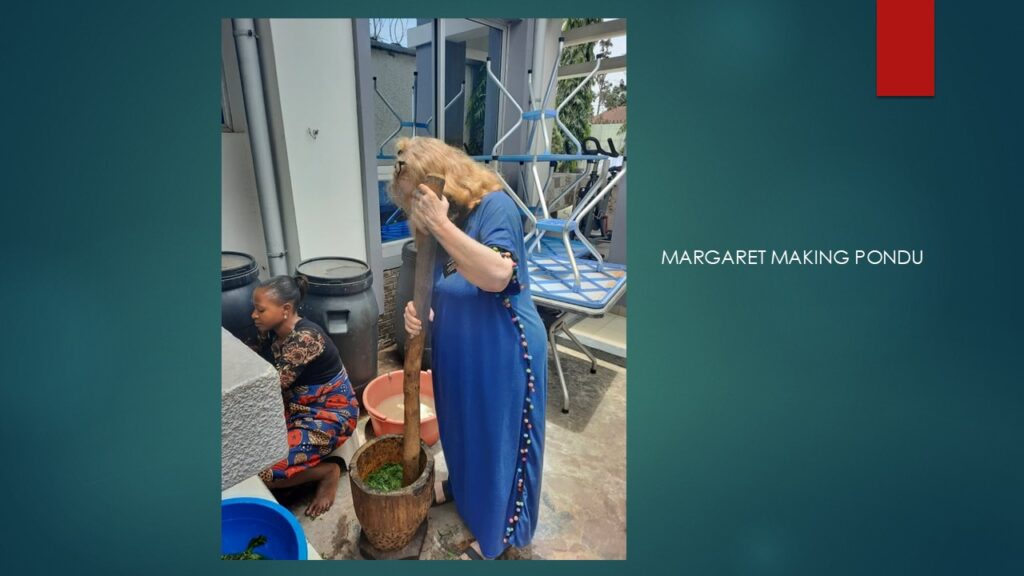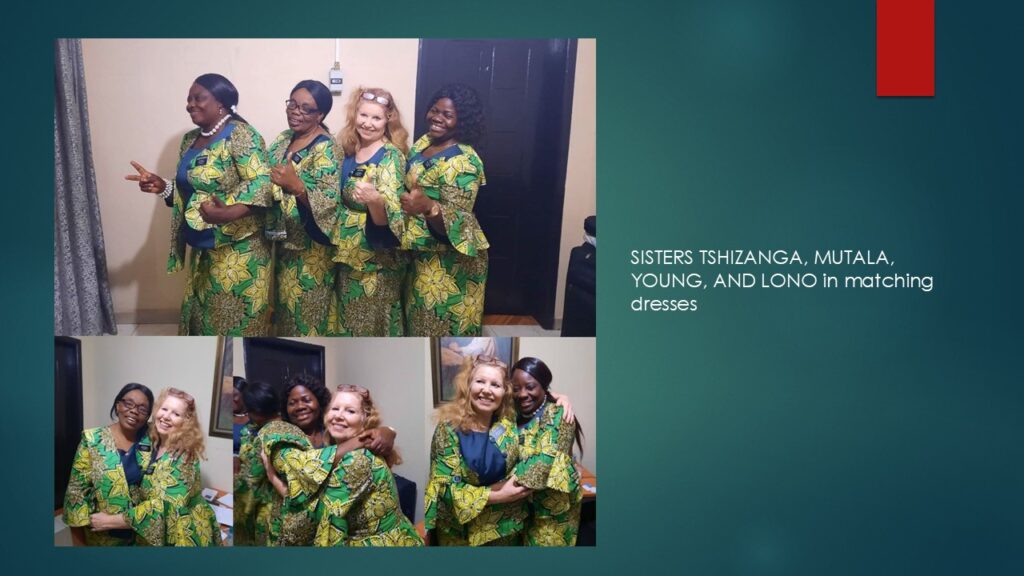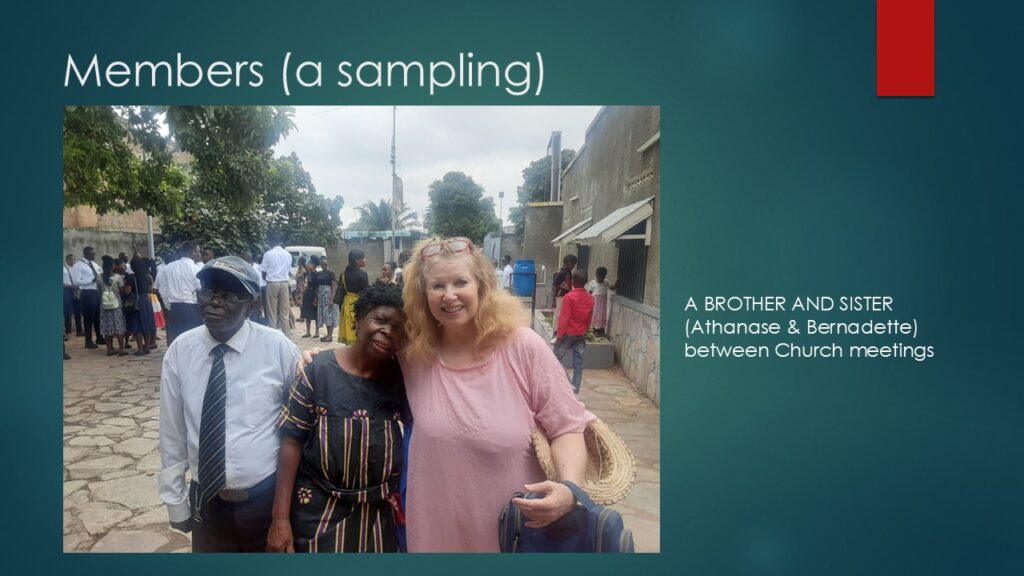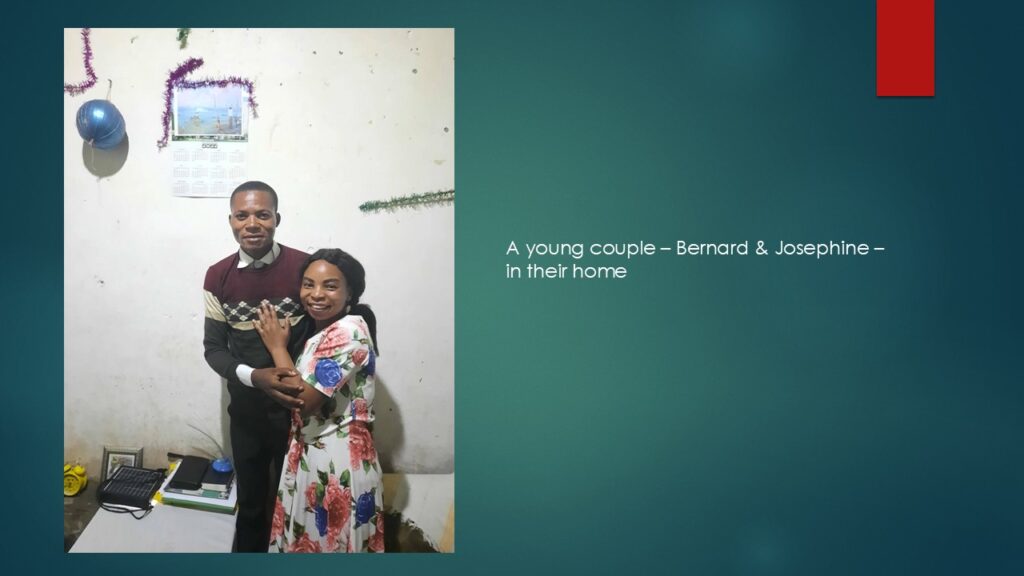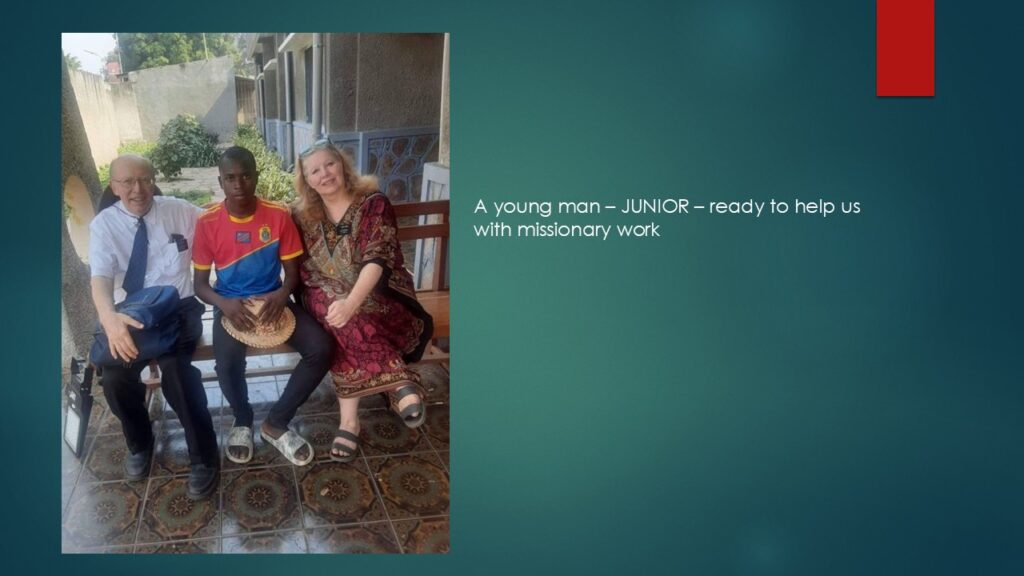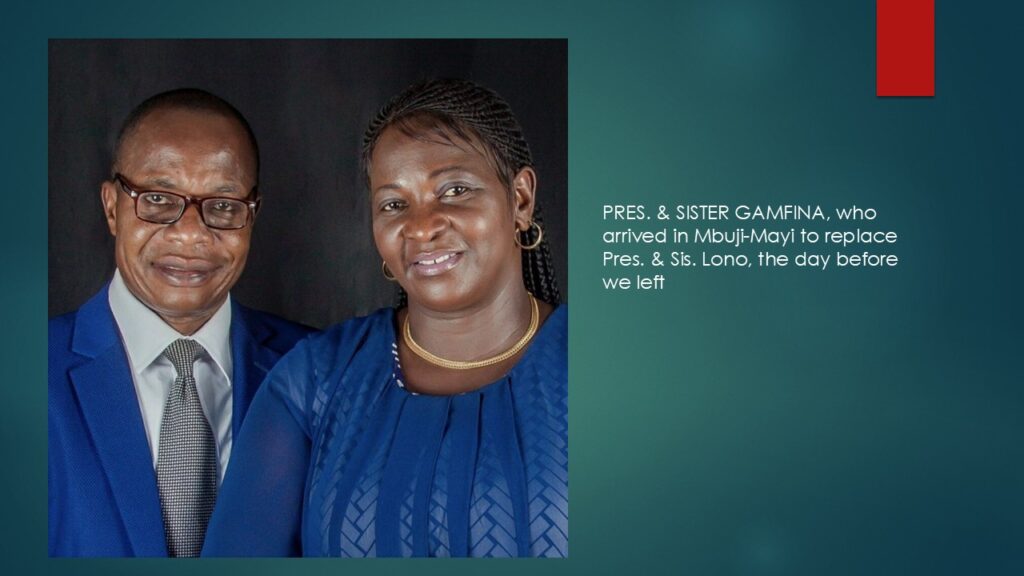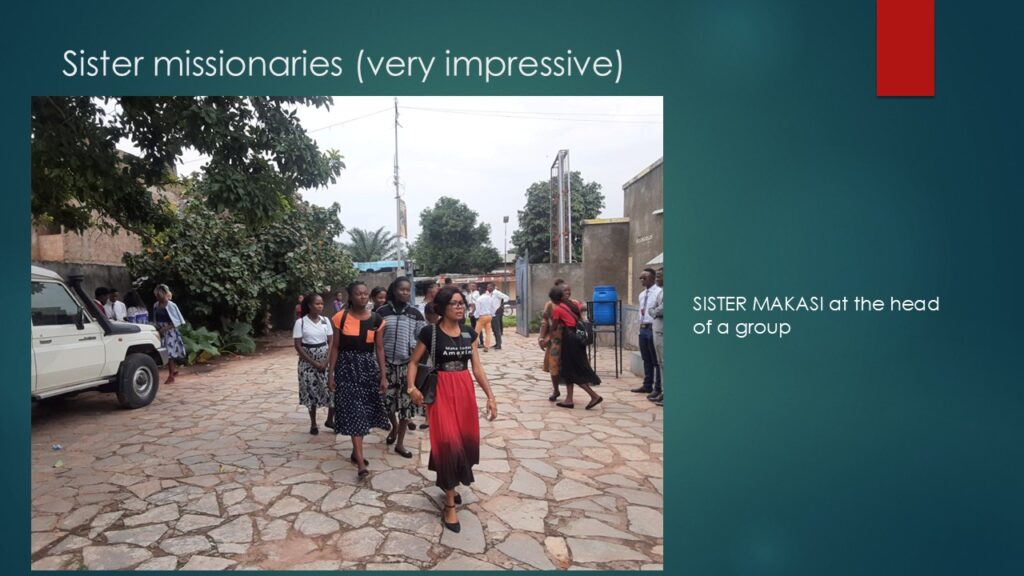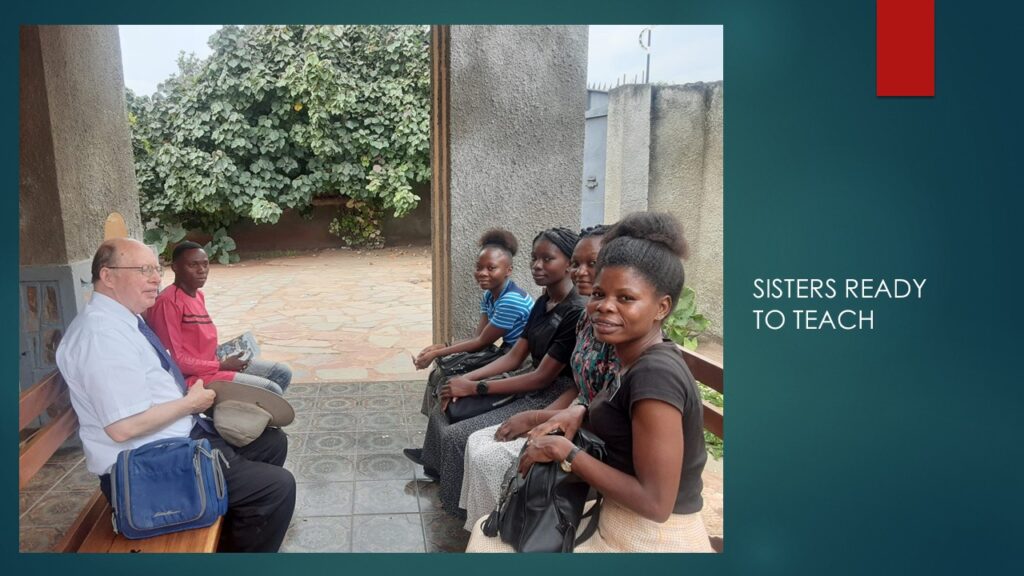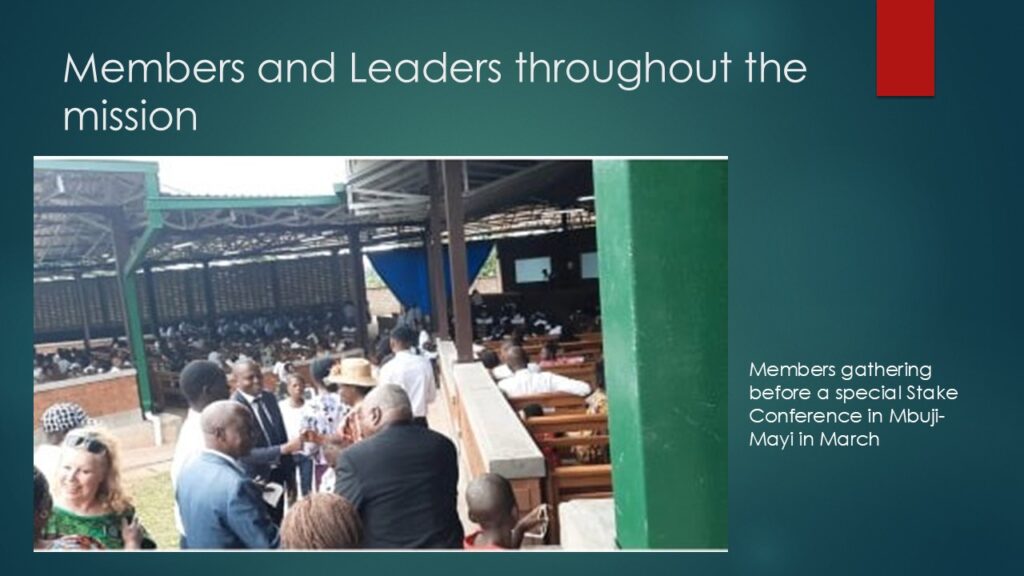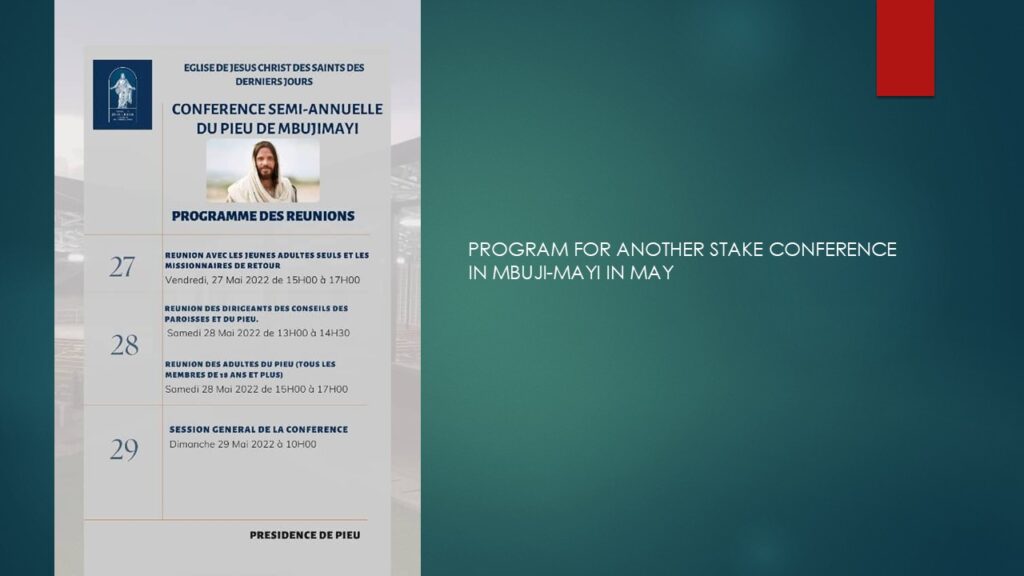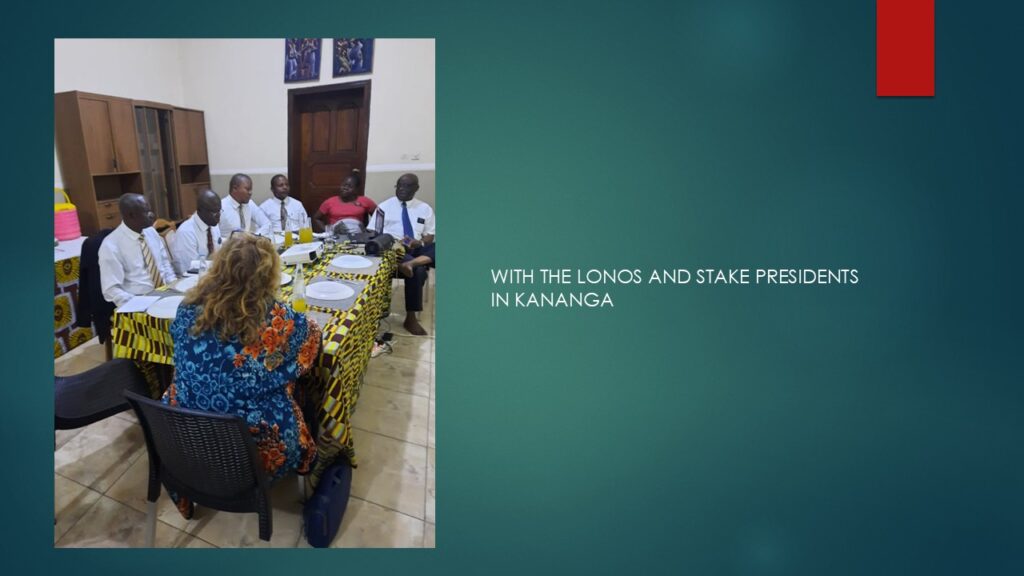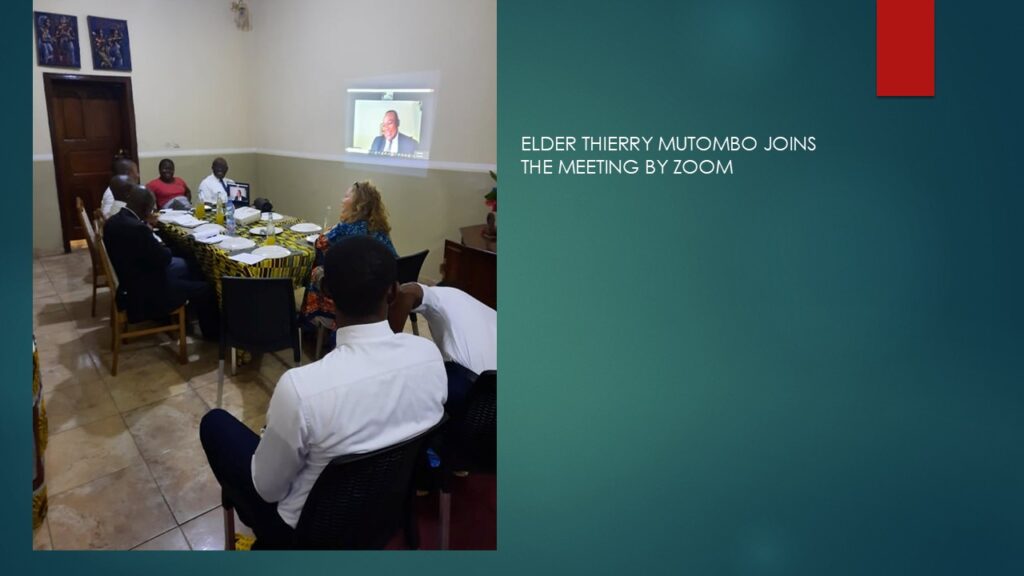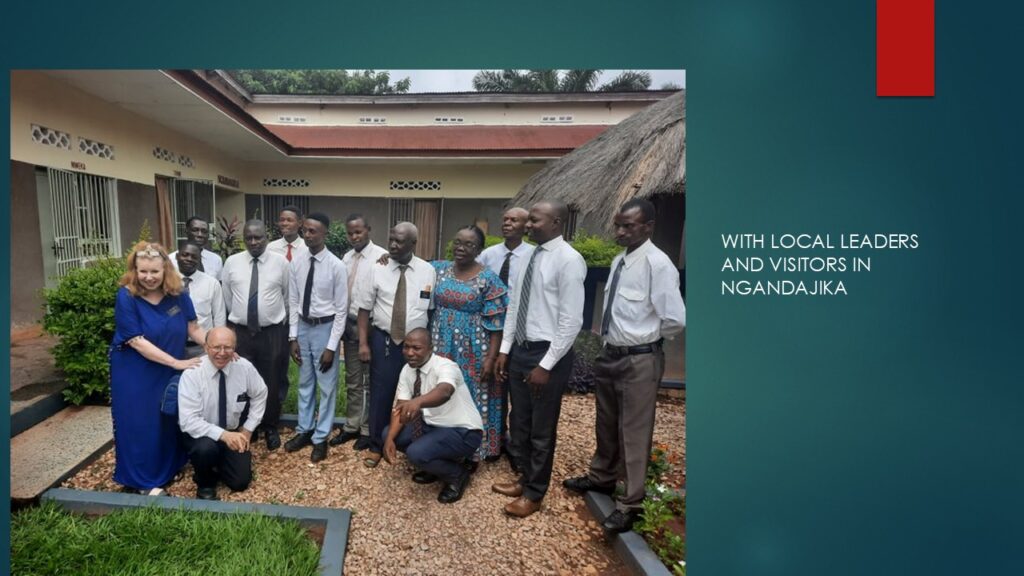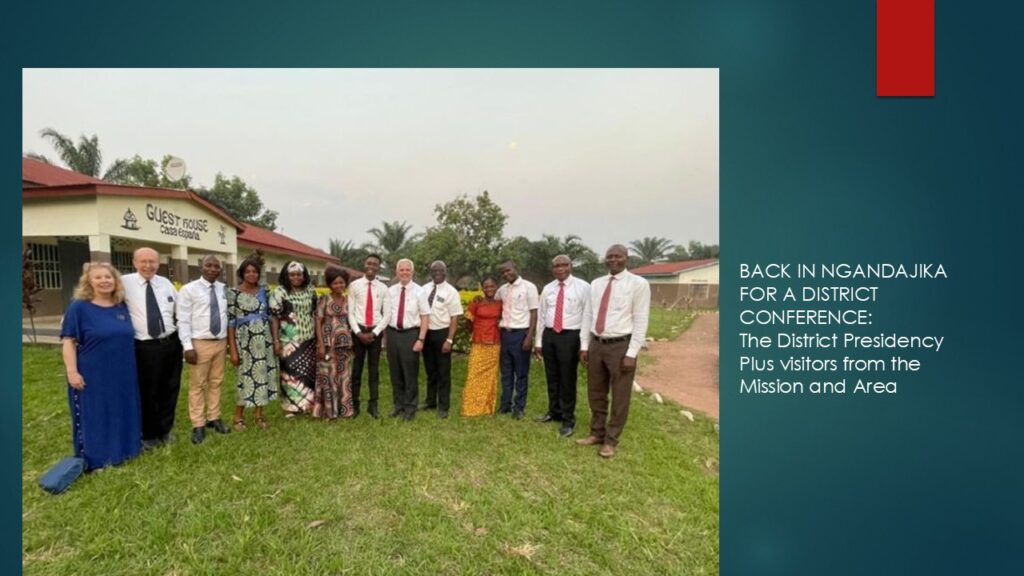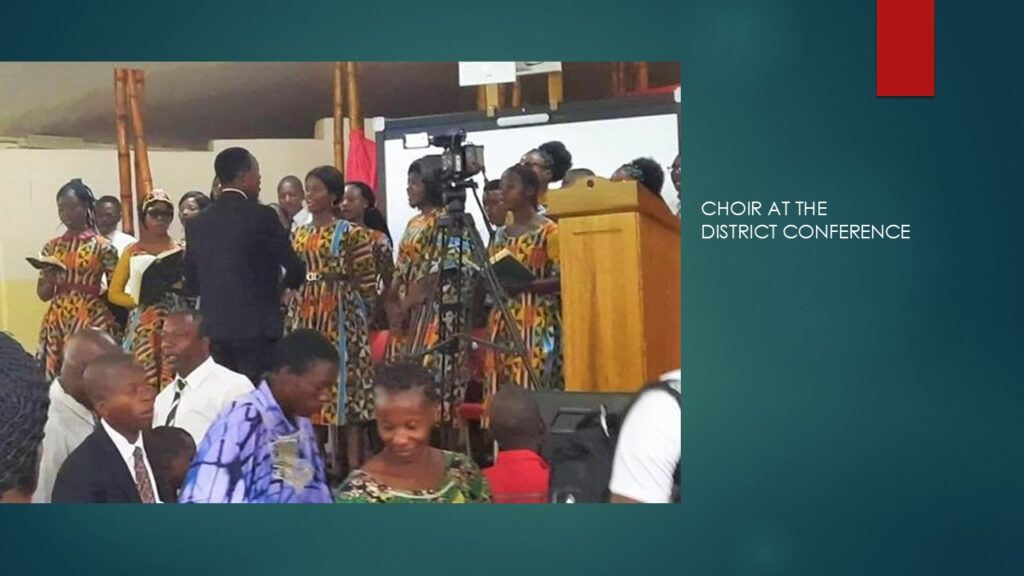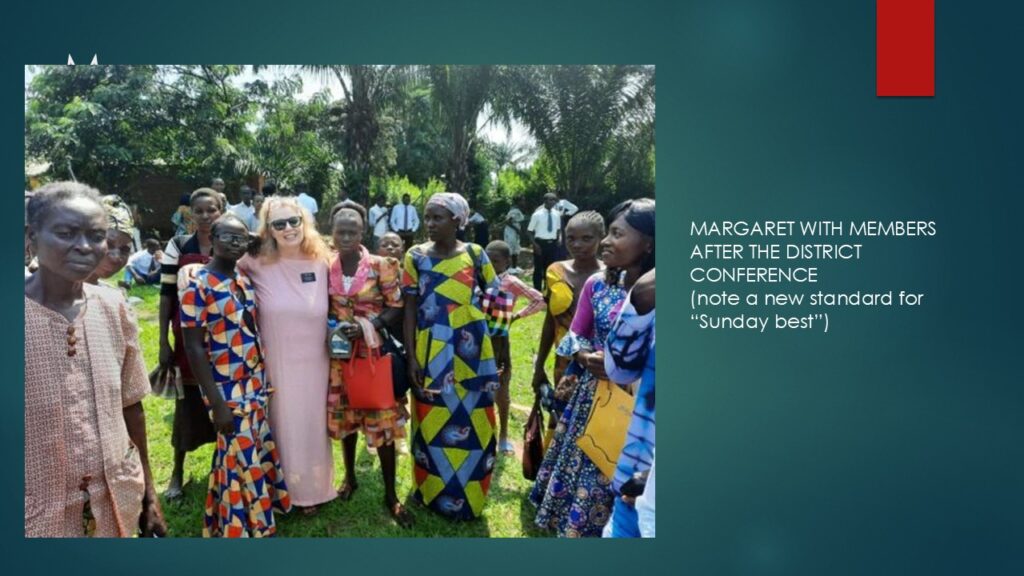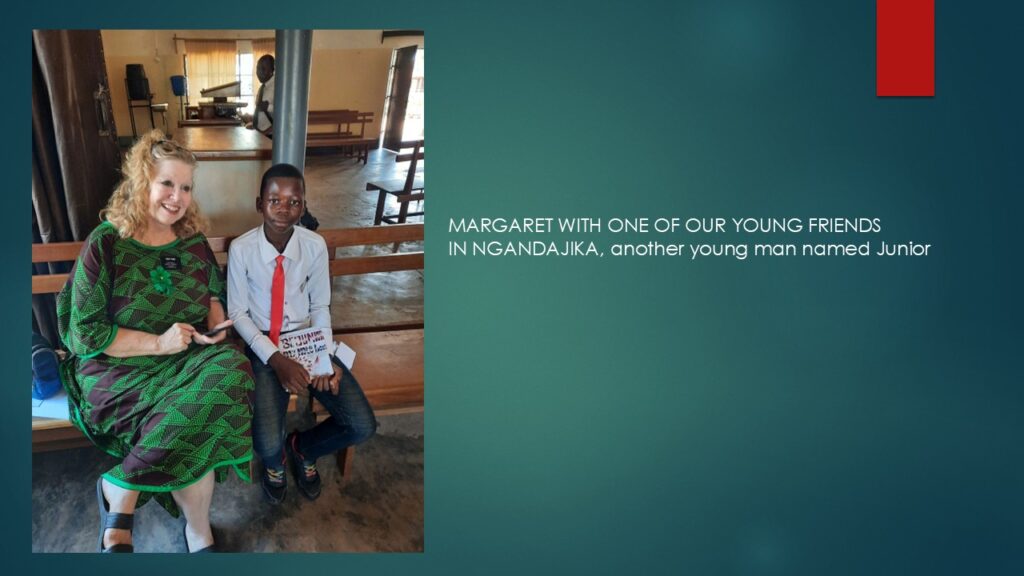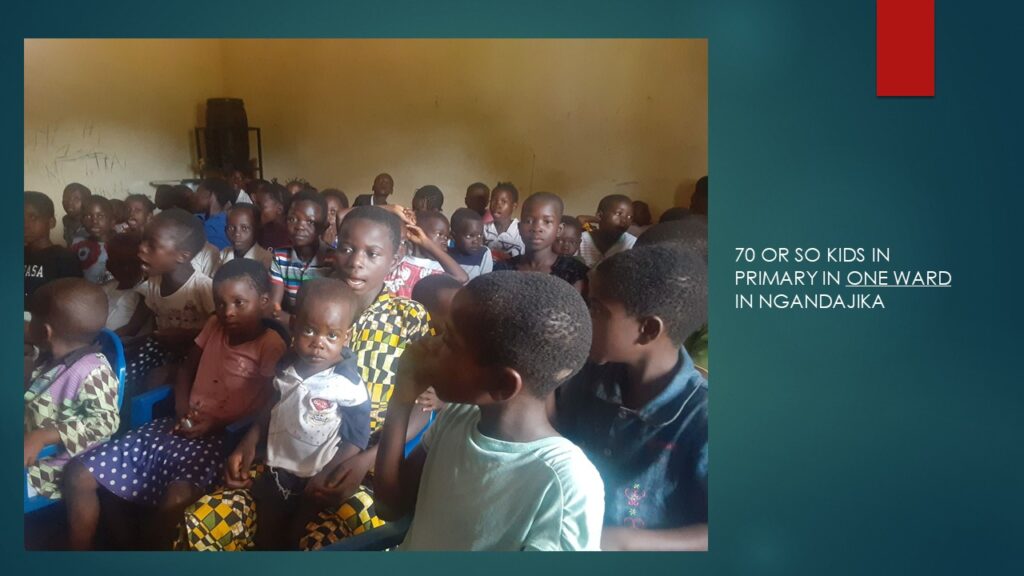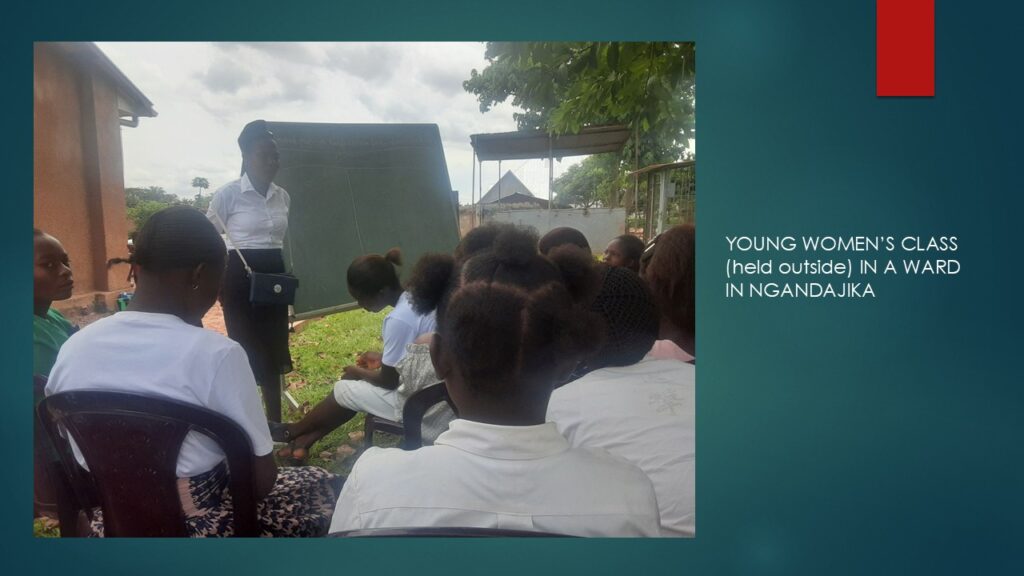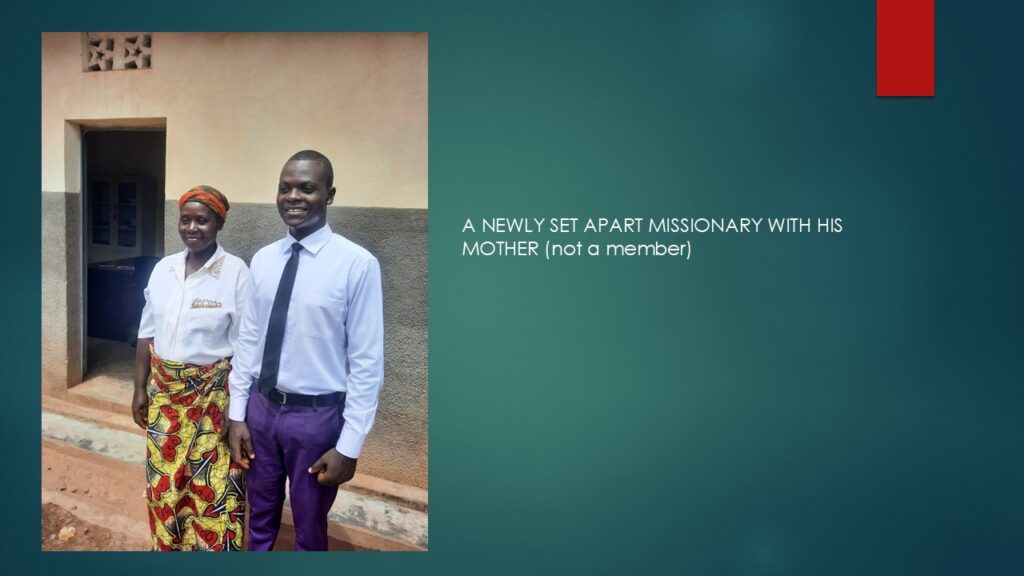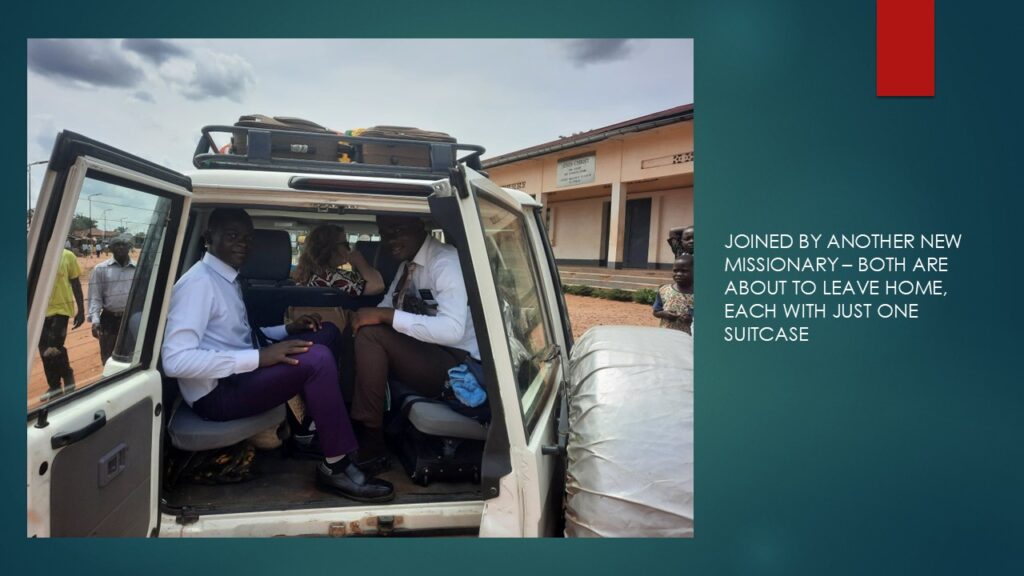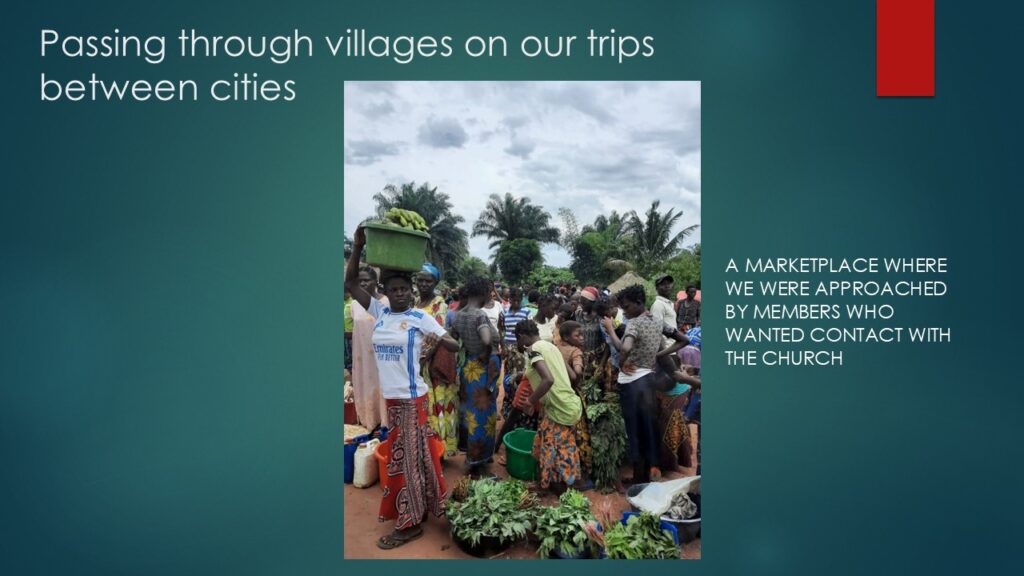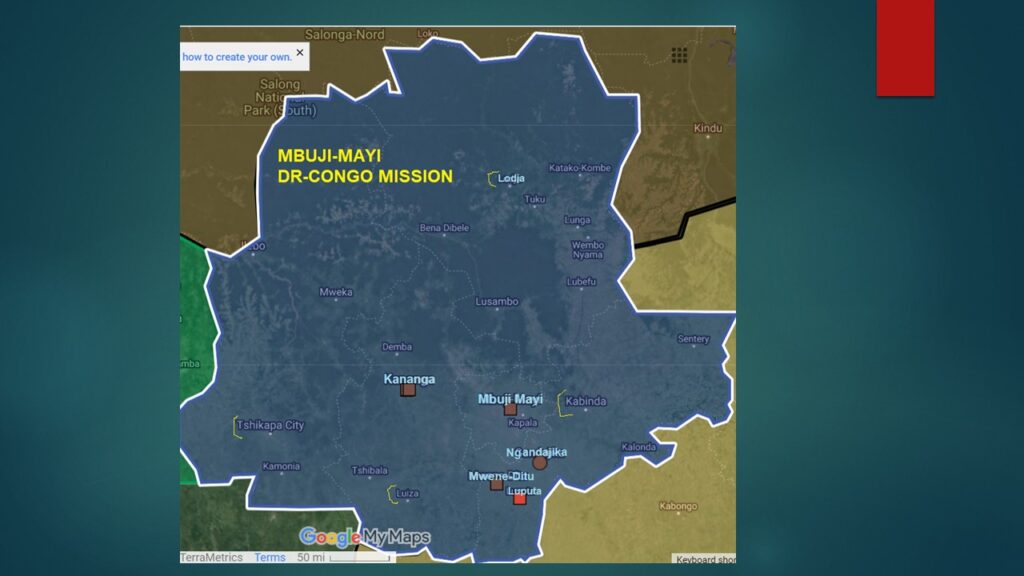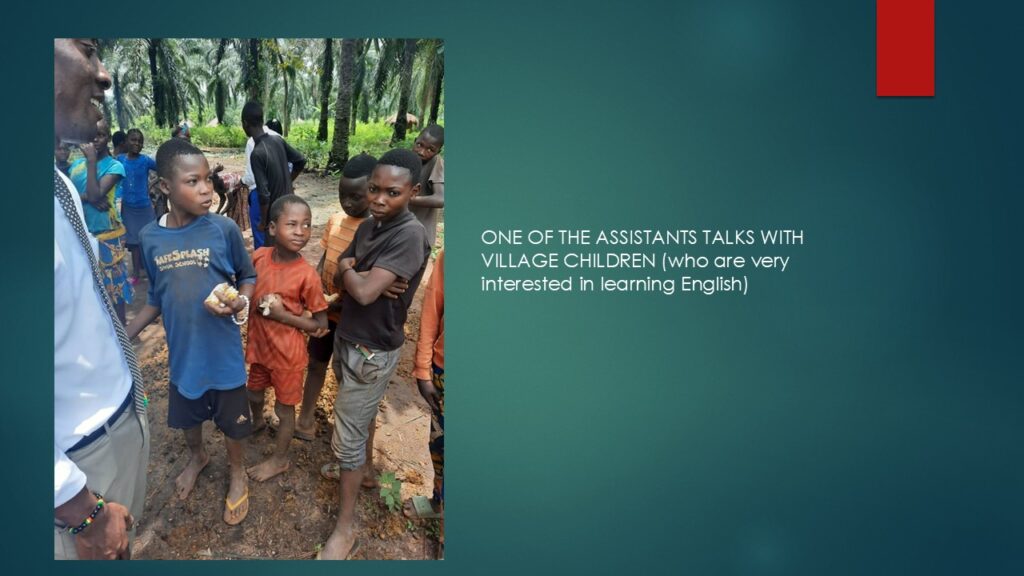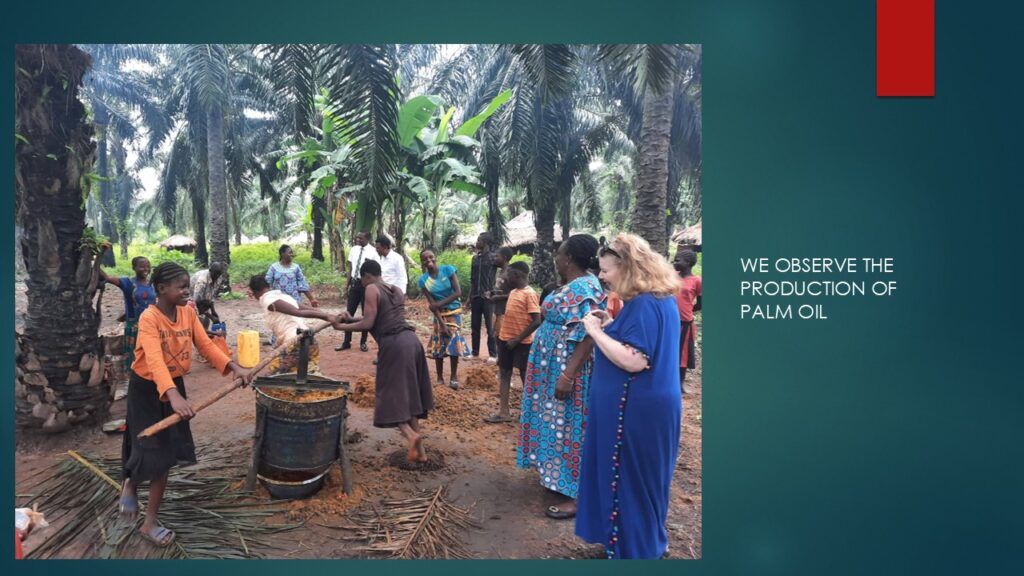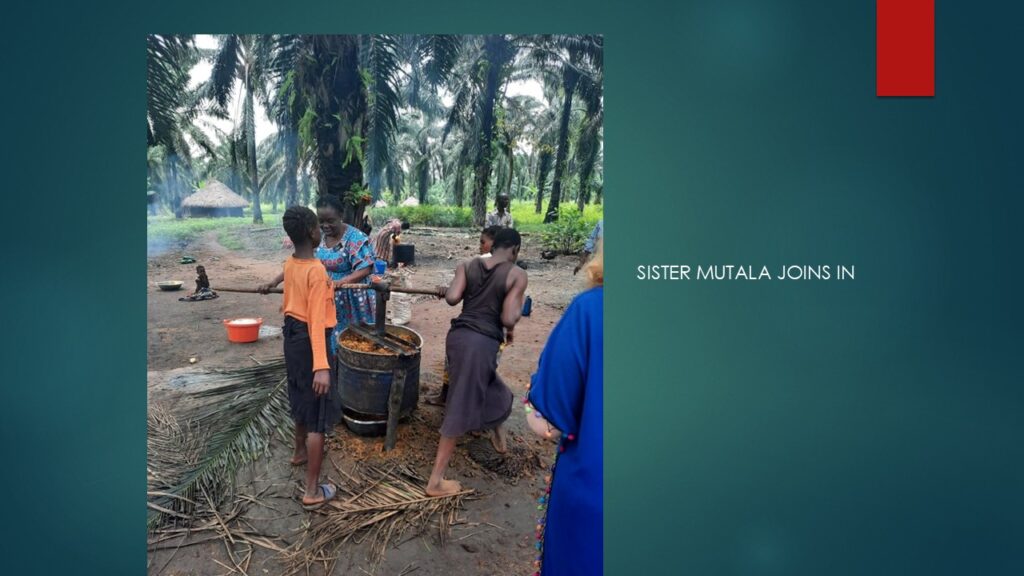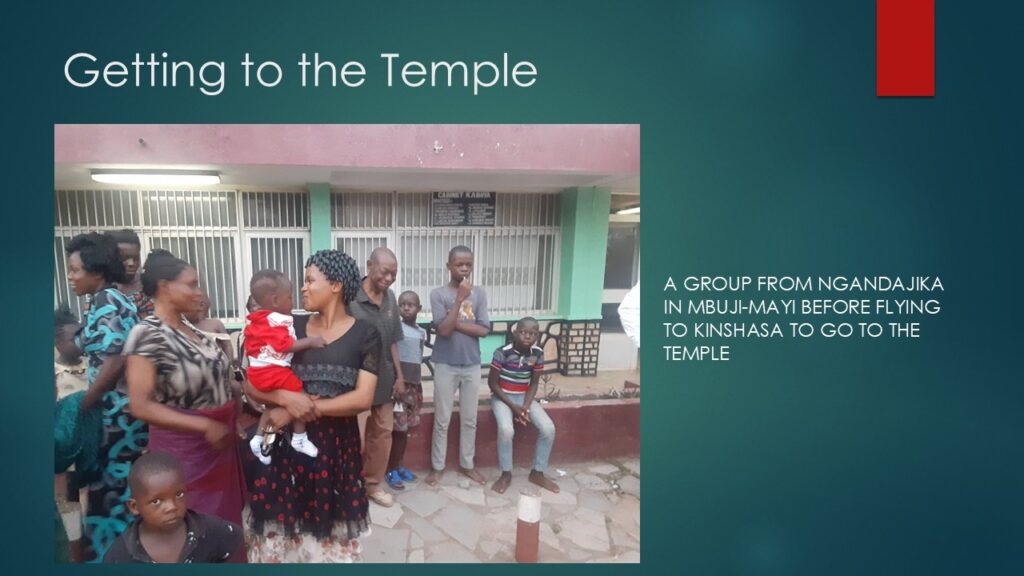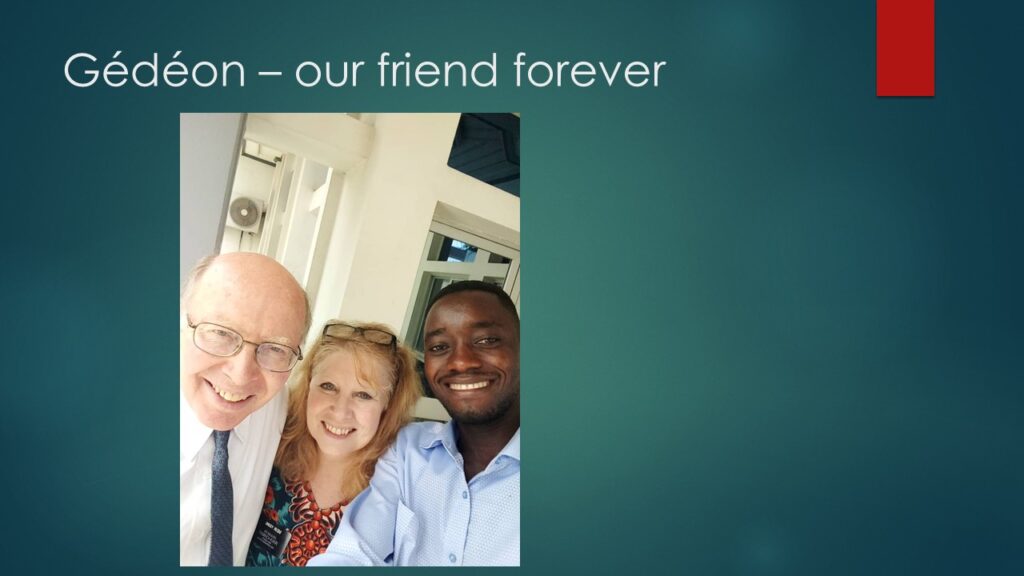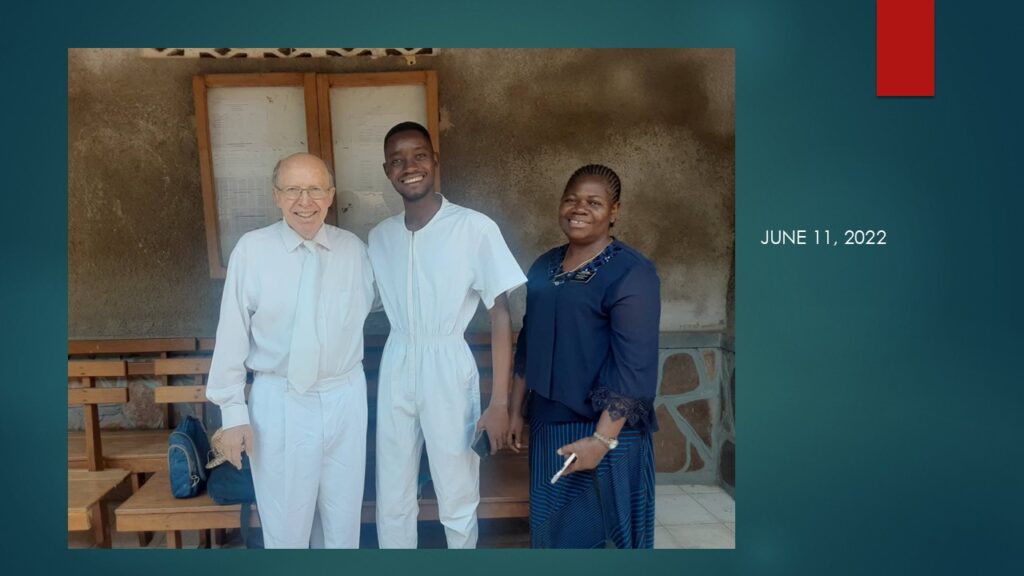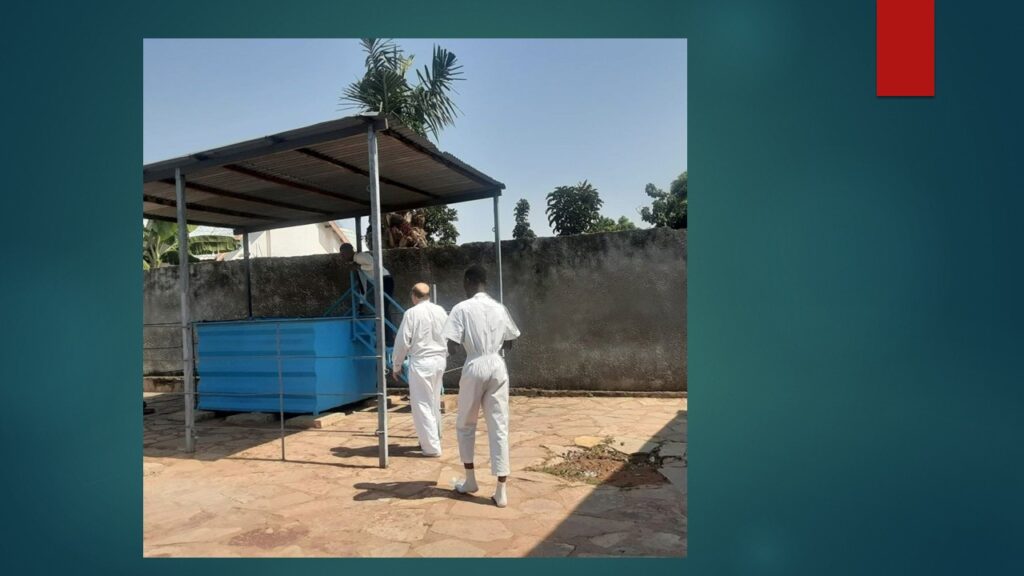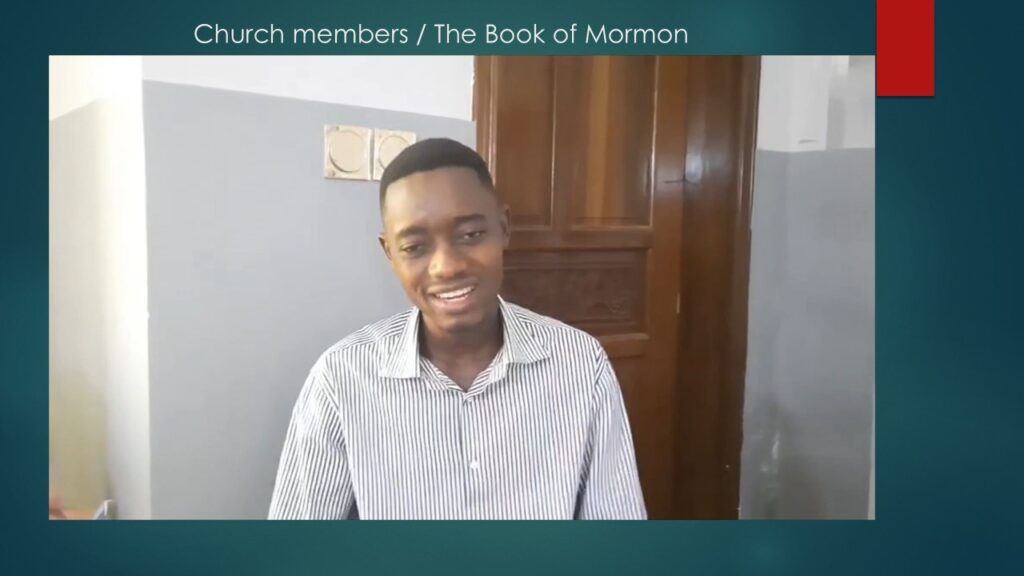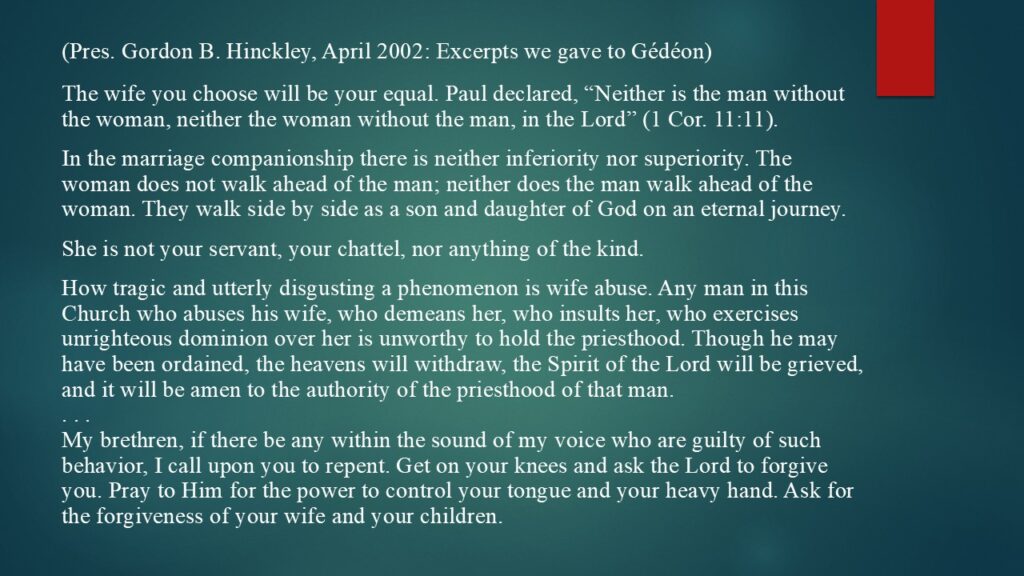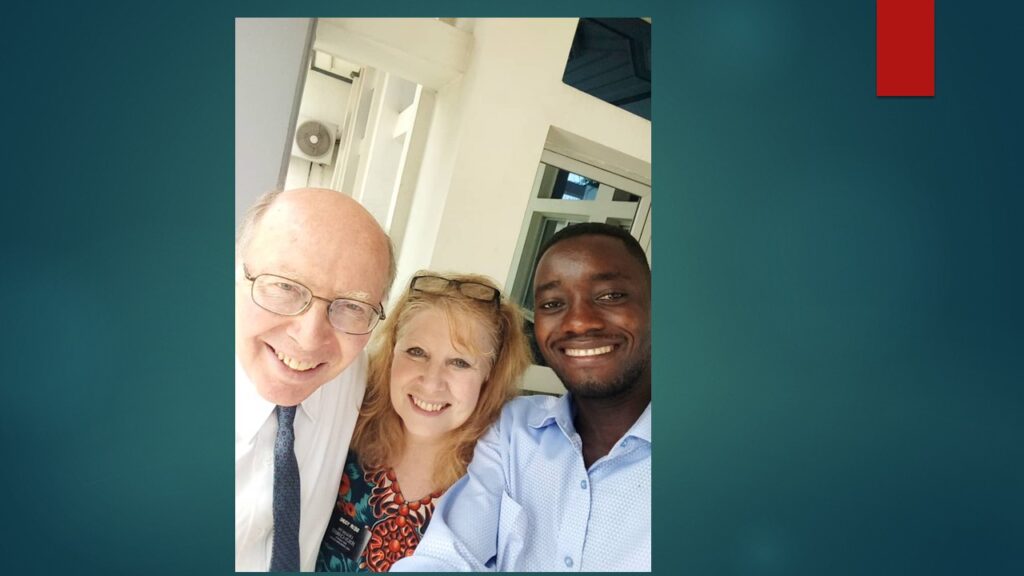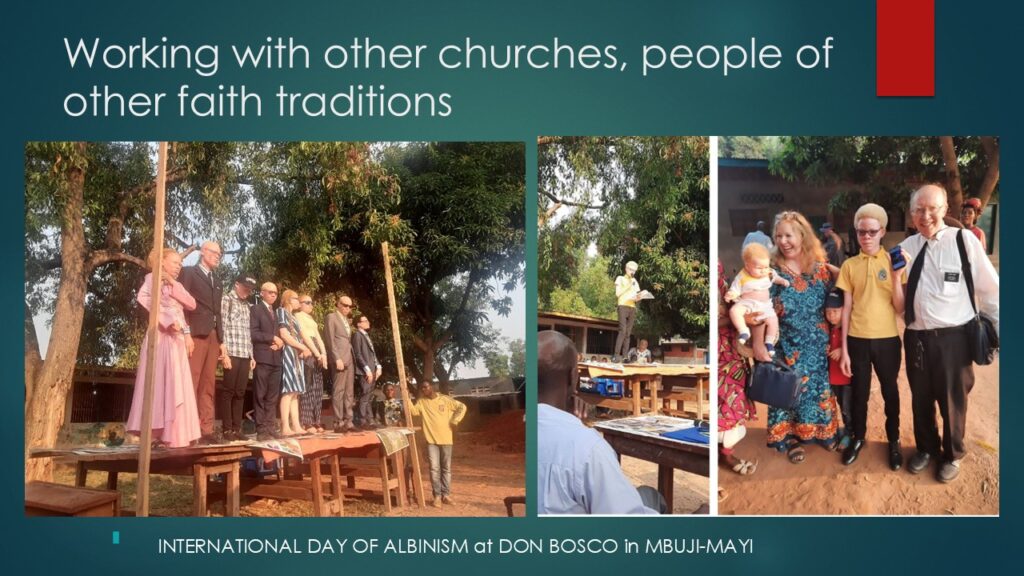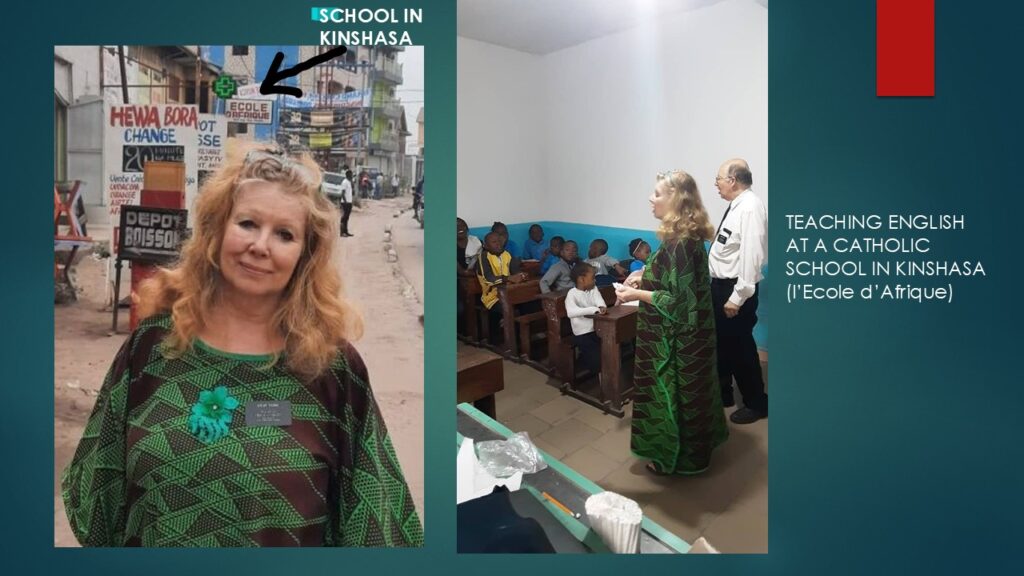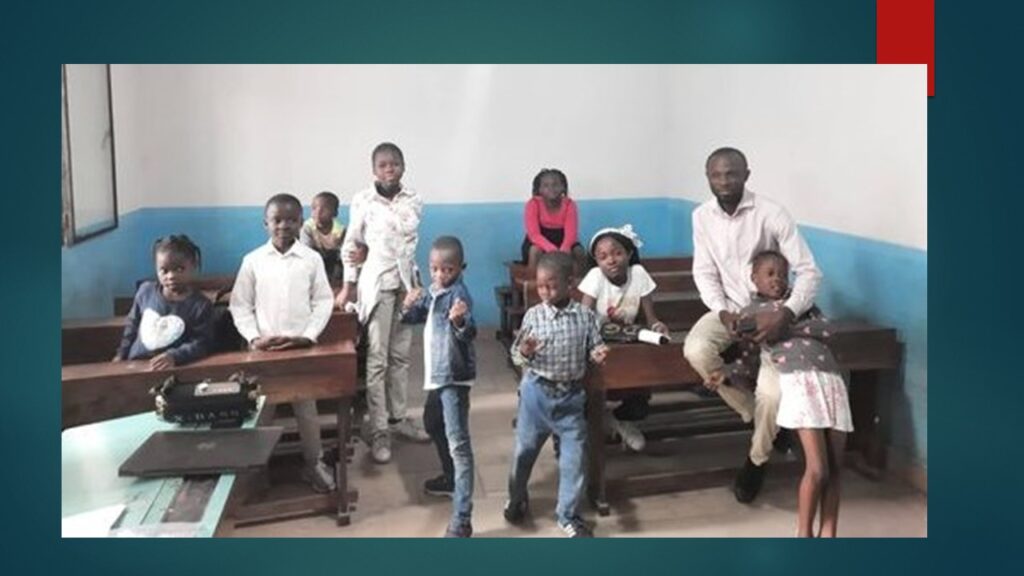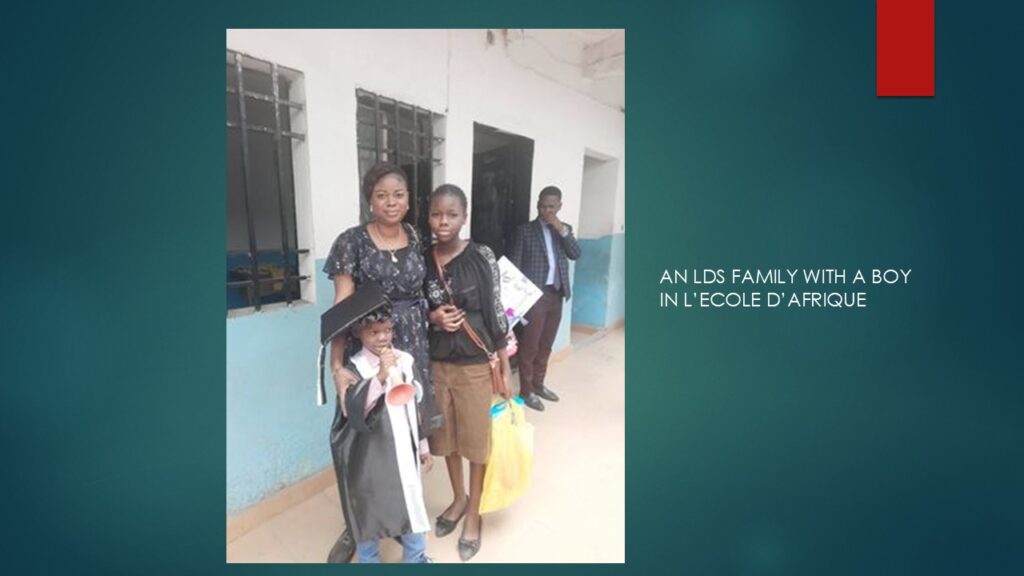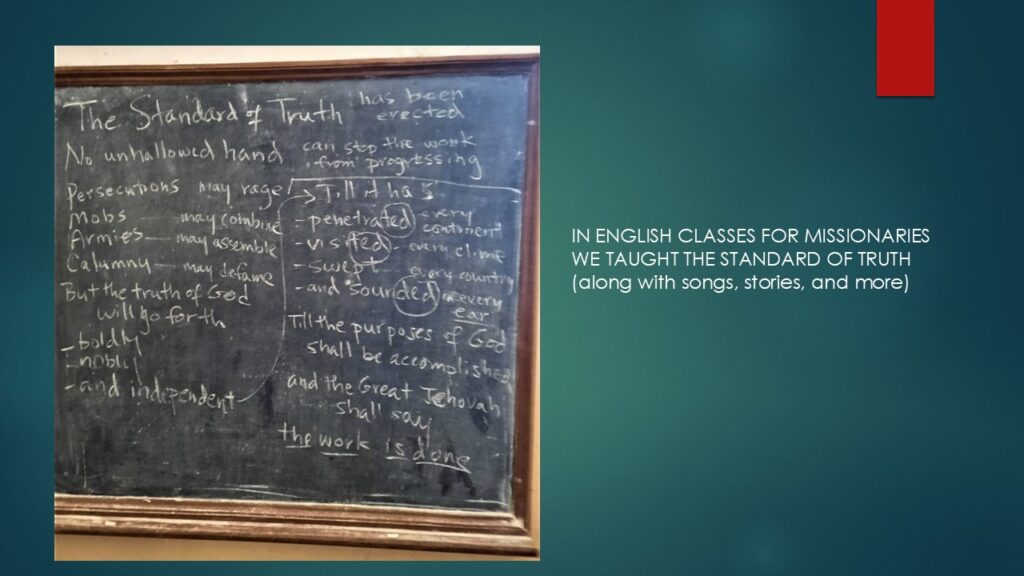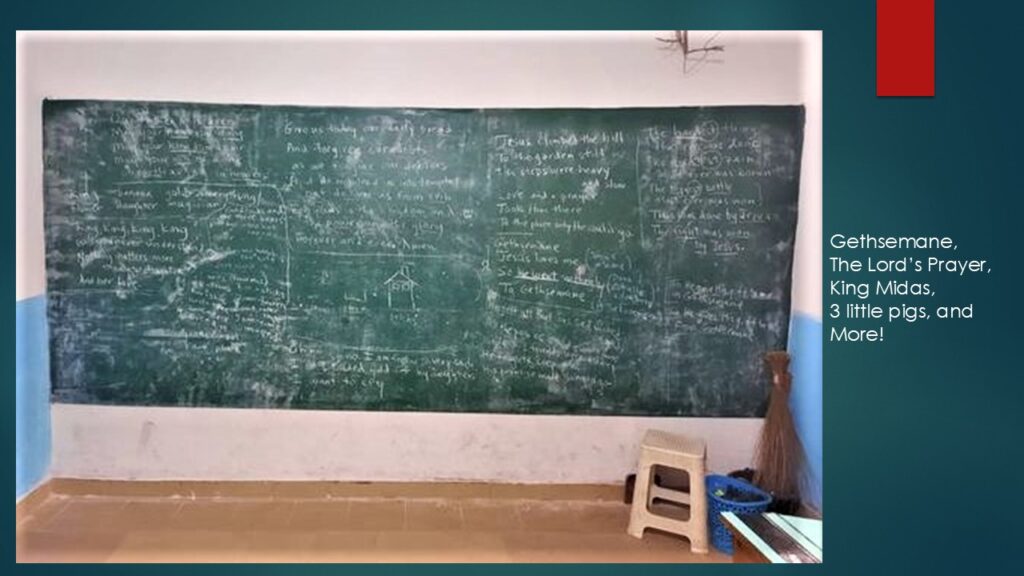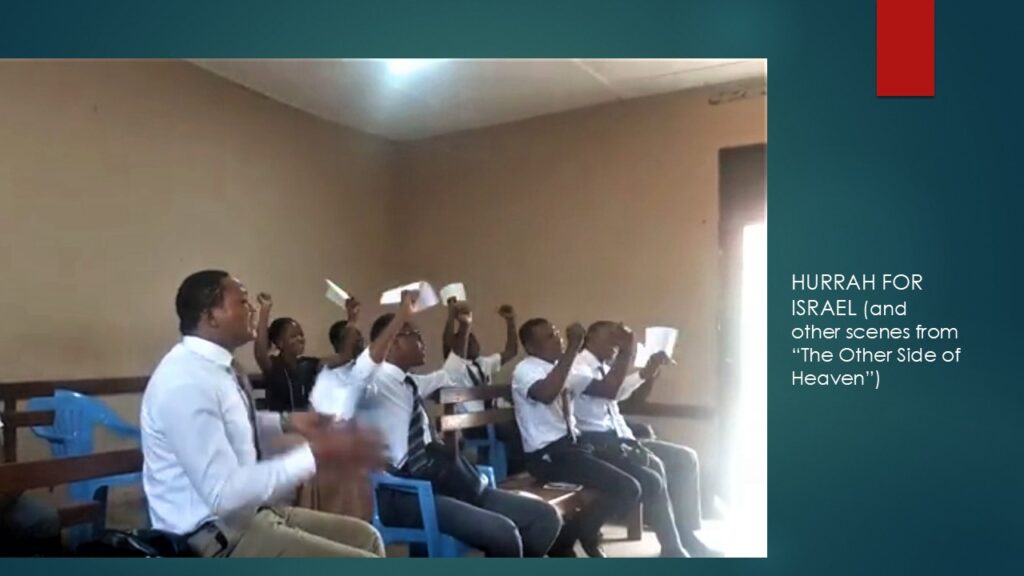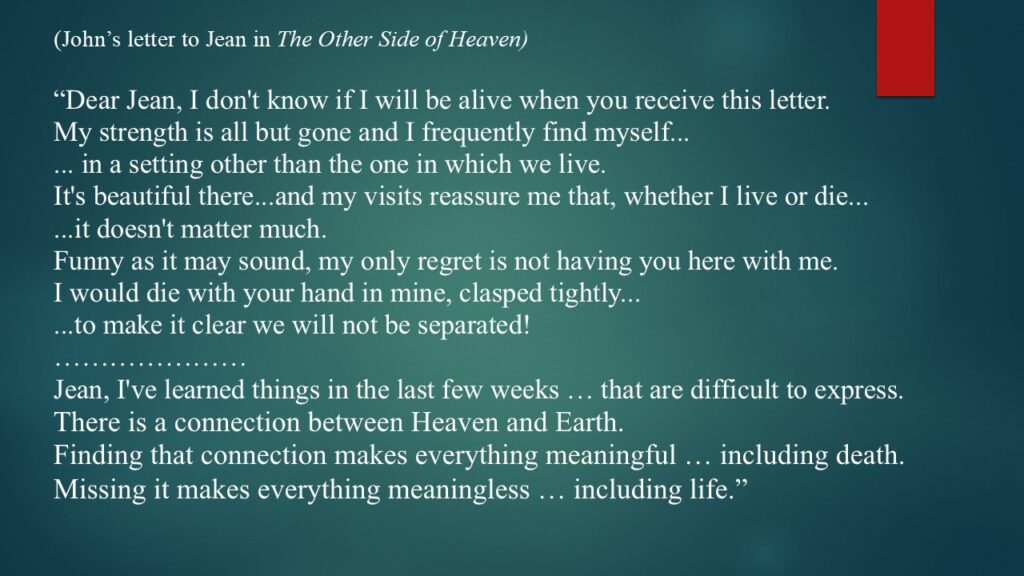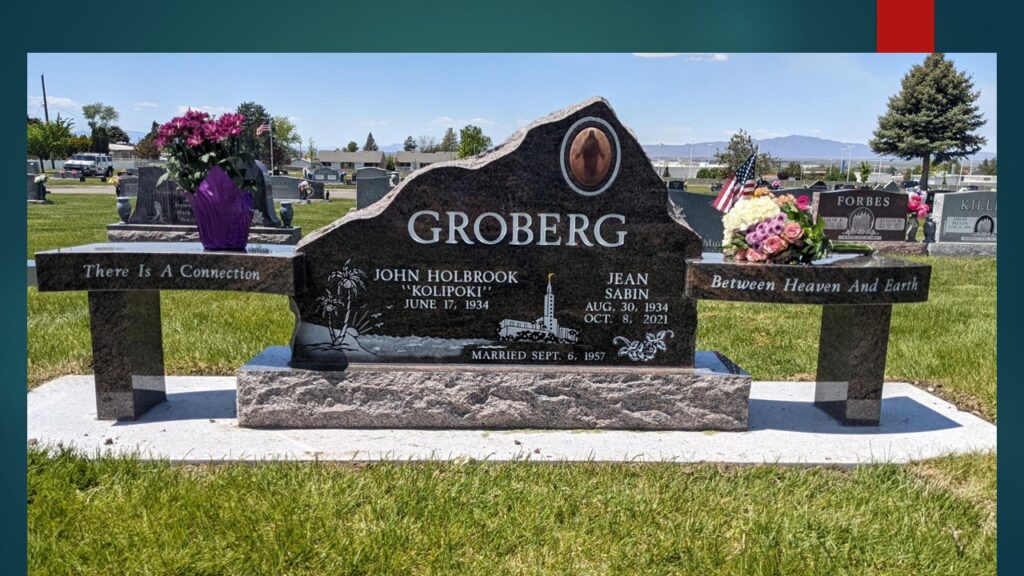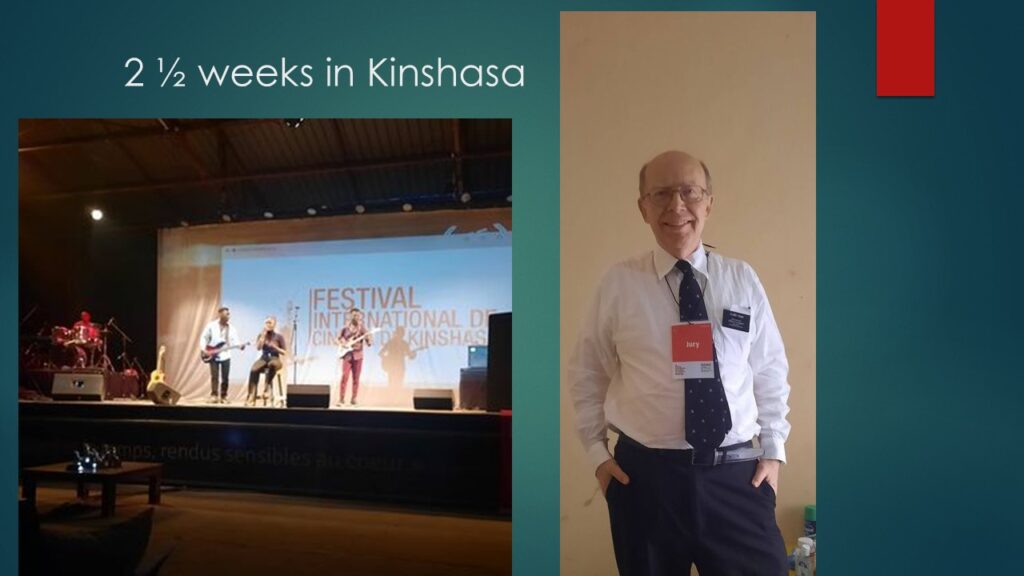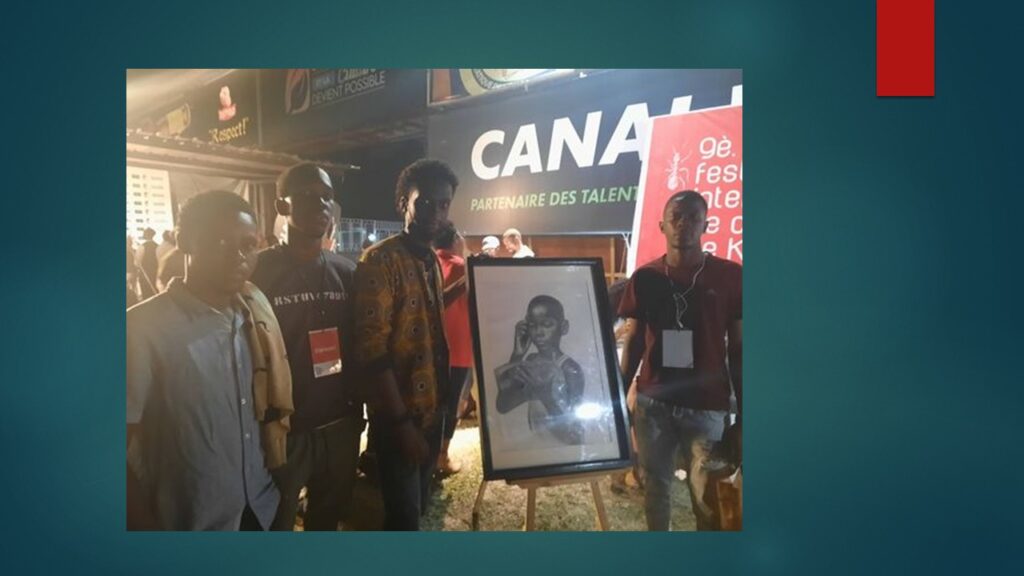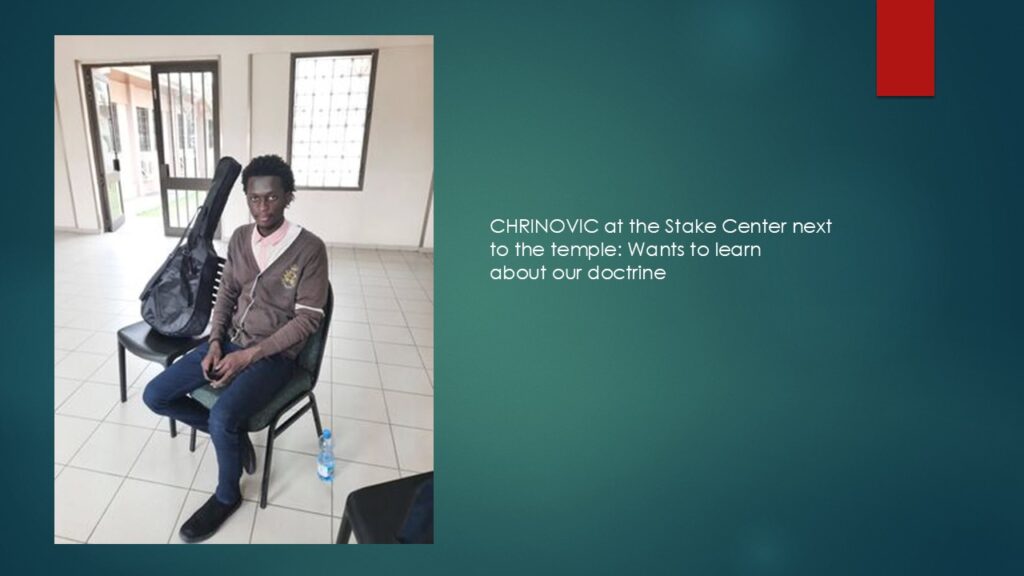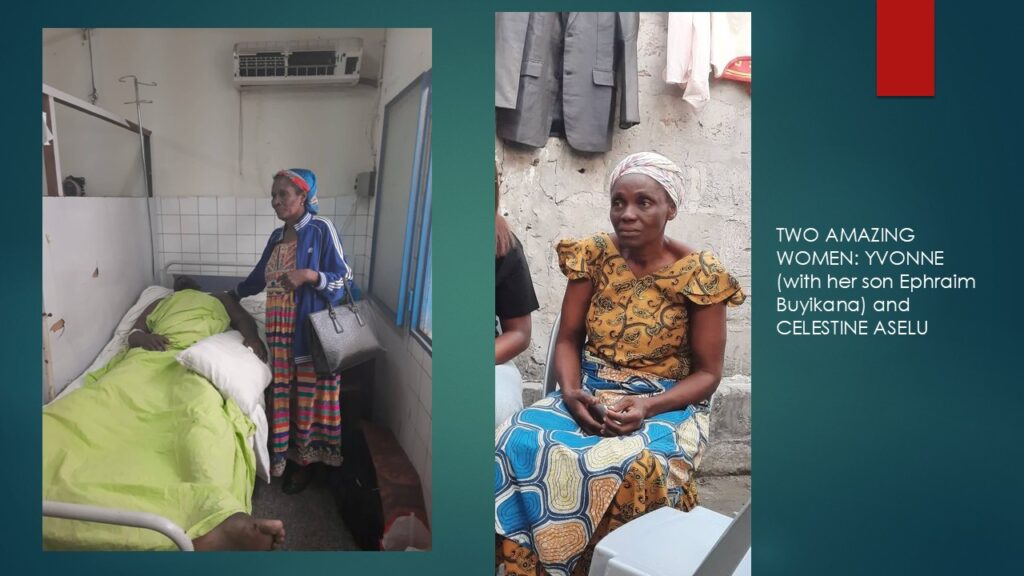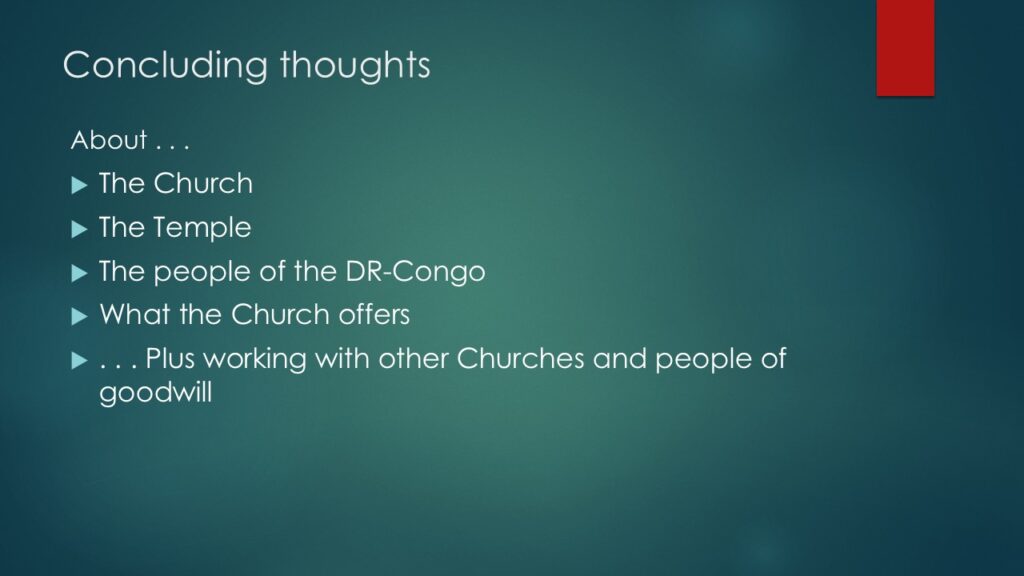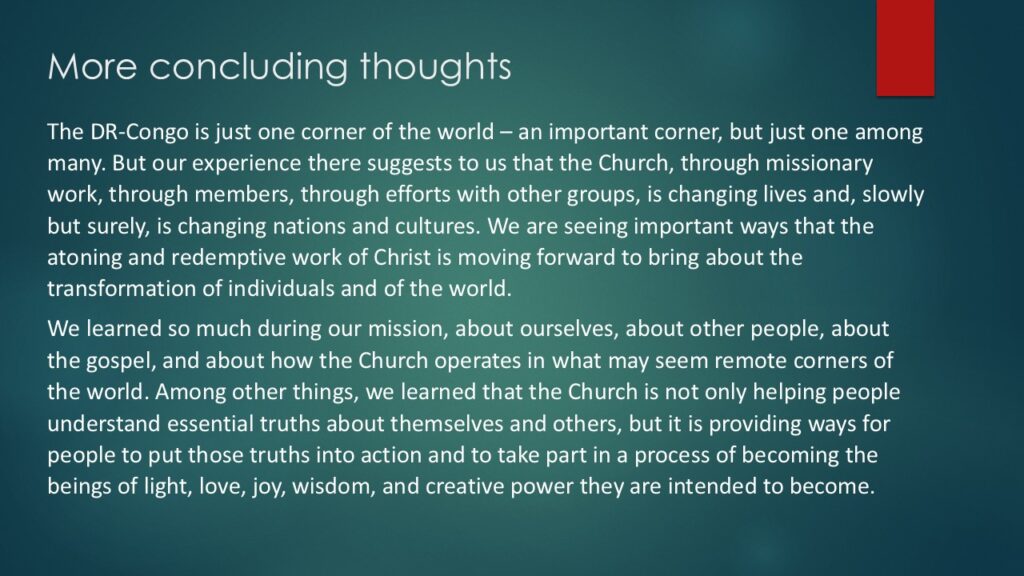Summary
Bruce Young shares insights from his mission experience in the Democratic Republic of the Congo with his wife, Margaret. Highlighting the transformative power of the gospel, he explores its impact on individuals, families, and communities, emphasizing interfaith collaboration, temple blessings, and the essence of gospel teachings.
This talk was given at the 2022 FAIR Conference on August 3, 2022.

Bruce Young, a retired BYU professor and experienced missionary, shares profound insights from his service in the DR-Congo, highlighting the transformative essence of gospel teachings and their cultural impact.
Transcript
Bruce Young
Introduction
This is my first time presenting at FAIR. There are lots of visuals, and if the text accompanying the visuals is too small to read, don’t worry. I’ll explain everything.
I want to start by clarifying something about the title, “Living and Sharing the Essence of the Gospel in the DR–Congo.” When I say the essence of the Gospel, I don’t mean to imply that we should ignore or devalue or fail to accept the literal reality of other aspects of the Gospel. In fact, I want to make it clear that I believe in the literal truth of the claims of the restored gospel—the First Vision, the Book of Mormon, the restoration, priesthood authority, and all the rest.
What I mean by the essence of the Gospel are the core truths that give life and meaning to these claims and to everything else in the Church and to our lives as members of the Church. Here’s how I’ve tried to express these core truths:
Essential Core Truths
We human beings have an existence that stretches into the past before this life and will continue after. We have the potential and opportunity to become beings of light, love, joy, wisdom, and creative power—that is, to become like God. This opportunity necessarily involves relationships with others, genuine others, because only in relationship with others do light, love, joy, wisdom, and creative power have meaning. God has provided the way for us to establish those relationships and fulfill that potential.
His relationship with us is that of a parent, or as we’ve been given a glimpse, we are children of a Heavenly Father and a Heavenly Mother, and as their offspring, have woven into our natures the possibility of becoming like them. A relationship with other human beings is familial; they are literally our brothers and sisters, though genetically related more or less distantly. We are immediately related to others in our spiritual essence as brothers and sisters.
Role of Jesus Christ
Jesus Christ, the firstborn Son of God and our elder brother, is essential to God’s plan for us. He is our example, our teacher, our Lord, and our loving friend. Through his atoning and redeeming work, he has the power to bring about not only rescue from sin and death but also transformation to enable us to become the beings of light, love, joy, wisdom, and power we have the potential of becoming.
As my presentation ends, I’ll return to this idea of the essence of the Gospel.
But first, let me explain a little bit about our mission and the Democratic Republic of the Congo. We’ve been to that country many times—this is my third time and the ninth time for my wife, Margaret—but it was our first time as missionaries. We served a mission of just six months, which seemed a long time when we were planning the mission but which felt very, very short by the time we were finishing.
Country and Mission Overview
We served in the Mbuji-Mayi Mission. Now, first of all, let me explain. There are four missions currently in the Democratic Republic of the Congo and part of a fifth, new one. They include the Kinshasa West Mission, the Kinshasa East Mission, the Lower Right Hand Corner of the Lubumbashi Mission, and then right there, sort of in the center, is the Mbuji-Mayi Mission, and that’s where we served.
Before I go on to the next slide, let me just note a couple of things about the country as a whole. There are 25 stakes and three districts. In Kinshasa, the capital, which was not in our mission, there are about 12 stakes and over 50 wards. Many of you may know that there is an operating temple in the Democratic Republic of the Congo in Kinshasa. We’ve been there several times. A second temple was announced some time ago for Lubumbashi, and a third temple was announced just recently for Kananga, which is within our mission.
Mbuji-Mavi Mission
This is our mission, the Mbuji-Mayi Mission, you can see several of the cities there. The headquarters is in Mbuji-Mayi itself, but we were in most of the other cities that are highlighted there. In our mission, there are seven stakes and one district, but there will soon be nine or more stakes. Several areas are ripe for division or for a district becoming a stake.
Recently, the Mbuji-Mayi Mission has been the highest baptizing mission in the entire church. That sometimes has been another mission in the Democratic Republic of the Congo, but recently it’s been the Mbuji-Mayi Mission. That has led to some concern for general leaders of the Church because they want to make sure that the conversions are genuine. And especially some concern because a lot of the baptisms have been young men who’ve been the only members of their family.
The situation has been examined quite carefully and discussed thoroughly, and it appears that indeed retention has been reasonably high and additional things have been put into place to ensure that the transition from baptism to life in the church is successful. But in fact, it is not just high baptizing but high conversion and retention. I don’t want to exaggerate the significance of what’s happening. These are, after all, human beings, meaning members, missionaries, leaders, and converts, so there are plenty of serious challenges, but something remarkable is happening there.
Experiences During Our Mission
With that as context, I want to focus on experiences my wife and I had during our mission, from which we returned less than two weeks ago. When we began our mission in January, I believe we were one of only three American couples serving in the entire DR Congo, that is, in all four missions. By the time we finished our mission, I believe we were the last American couple to have been there. All the missions could definitely use a lot more senior couples, and I’m looking at all of you to see who among you ought to go. It’s actually a great place to go and you have a great experience there. They’re short-handed—they need more people to do the kind of things that office couples do but also need more general member and leader support. At the same time, it’s nice to see that the strong, capable native African members and leaders are handling things quite well.
I’m going to tell you a bit about some of the things we did during our mission. We went on trips with the mission president and his wife, and sometimes others, including Elder Carpenter of the area presidency. This slide just illustrates the challenge of getting from city to city—the roads are often very difficult, and transportation can be very challenging. I’ll spare you some stories of what we went through sometimes. In addition, we helped with leader training, we taught English classes to missionaries in person and by Zoom, and also taught an English class to members and non-members. We helped prepare missionaries nearing the end of their mission for post-mission life and just did whatever else we were asked to do.
Building Relationships
If you think about it, you can see that much of what happened was interacting with other people and developing relationships with them. To give you a feel, I’ll show you a few pictures of some of the people who were important to us.
This is the Youngs in the middle and on either side, Elder and Sister Mutala. They’re from Lubumbashi, a different area from our mission but came to serve a mission there as an office couple and are doing a marvelous job.
This is an interesting sight I need to explain a bit about. On the left, you see the Youngs; on the right, you see President and Sister Lono. And by the way, President Lono looks kind of serious here, but he could be just delightfully funny, playful, affectionate, warm, and sometimes very, very stern, but he was a great mission president. In the middle is a Catholic priest that we call Abbe Veron. He’s been our friend for some time, long before we served the mission, since 2017. In fact, he came to the United States and stayed with us in our home for a while. And it turns out he’s also a good friend of President Lono—they both are from the same area of the DR Congo, an area which includes the city called Lodja, which we’ll mention a little bit more about.
Impressions about the Missionary Work
Of course, missionary work is a significant part of the mission, and we were very impressed by many of the young elders and sisters, in particular by the sisters, honestly. This is a group of sister missionaries with Sister Makasi in the lead, and by the way, Makasi in Lingala, one of the languages of the Congo, means strong, and she definitely was strong.
And this is the program for another stake conference.
An Early Experience
Before I move on, I just wanted to note one thing about an early experience that I had there. There was a stake priesthood meeting early on that I went to, and I was really so impressed that I wrote about it. And this is what I said.
First of all, the stake building was packed with youth and adults. I learned later that the meeting was also being broadcast to a nearby hall in the stake complex because there wasn’t enough room for everyone in the main chapel. I don’t know how many attended—maybe something on the order of 600. In any case, this was very different from the stake priesthood meetings I’ve attended in my stake in Provo, in which a much smaller chapel has been only partly filled.
“And then the talks—these were impressive in content and presentation and in spirit. Not a single one of the speakers read from a text, though they may have had notes. They spoke directly, powerfully, in a natural and upbeat way with great energy and insight. I felt both energized and informed by the meeting.”
It turned out that not every meeting lived up to that standard during the rest of the mission, but in general, I continued to be impressed by the leaders and members—knowledgeable, capable, good, and inspired.
Our meeting was joined by Zoom by Elder Thierry Mutombo—some of you may know him, he’s a General Authority Seventy and who has spoken in general conference, given one of the best talks I’ve ever heard.
Cities and Villages
Another issue that came up was that there are members of the Church scattered around in other cities and villages, usually having been baptized elsewhere, but they’re hungering for the church to get established where they are. We were in this market on our way to another city, and someone came up to us and said, “I’m a member of the Church. When is the Church going to be here?” And Sister Lono took down the names of people—members of the Church who were in that area.
In some of the cities you see with a little yellow squiggle by them, there are members of the Church, sometimes official groups but sometimes just members who would love to be organized. Again one of the biggest challenges is transportation because missionaries have to get back and forth, leaders have to get back and forth, and so anyway, some challenges that are being worked on.
Also, another issue is getting people to the temple. There’s just one temple there now in Kinshasa. This is a group from Ngandajika who had made it to Mbuji-Mayi and then would fly from there to Kinshasa for endowments and sealings.
Impact of the Temple
I just wanted to say a little bit about the impact of the temple, and I know that at least here in America there are sometimes mixed feelings about the temple, but I will tell you that during our mission, it was impressive to see the impact of the temple on people’s lives.
A speaker at a stake conference told of the impact that the temple had on him. He said that when he got angry at his children and wanted to hit them, the thought came to his mind, “I had been to the temple. I can’t do that.”
And that may not have seemed like a big deal, but in a culture where striking children is accepted, in some cases expected, it is a very big deal. We could see evidence of a heart changing, of a changed vision of who his children were and who his wife was, and we could see, along with that, incremental changes happening in the culture.
Highlight of the Mission: Teaching Gedeon
Well, I want to now tell you about what was, for me, the highlight of the mission, and that is a young man we got to teach named Gedeon. He’d grown up in a village and then had moved to Mbuji-Mayi, and somehow he’d learned English and spoke excellent English. In fact, he taught English at a school there and also was the private tutor of what they called “repetiteur” for the children of the Lono family. Sister Lono had introduced him to us.
We started teaching him in February, and he was very receptive and responsive but hesitant about coming to church. And we knew that part of that was that every weekend he went to visit his mother back in the village because she was ill. In fact, after his baptism, sometime after his baptism, she actually died. But he had been hesitant also to come to a church meeting because he’d heard bad things about what we did there, and also he didn’t like the sort of noisy mode of worship that a lot of the churches there had. One day he asked us, “Do you dance in your meetings?” And I said, “No, we don’t dance in our meetings.” He was relieved to hear that.
So eventually he came, and he was able to rearrange his schedule of visiting his mother, and eventually was able to come and in fact was baptized on June 11th.
Testimony of Gedeon
So I’m going to let you tell him something about his life and his conversion in his own words.
Well, knowing about the gospel and being a member of the Church is really the best thing that ever happened in my life. The fact that God led you to me so that I can know how the Gospel of Jesus Christ has been restored is really a blessing, and I am very grateful to God the Father for this particular favor and to you for the time you devoted teaching me these amazing things.
“As you can have noticed, there are many churches, we are surrounded by many churches, but a problem with all of them is that they spend most of their time yelling, crying, asking people for money. They don’t teach people standards of morality. They don’t strengthen families to build stepping stones of the society and unfortunately I spent most of my time in those churches until I was fed up with them ‘cause I saw nothing interesting, I didn’t see anything interesting. They don’t really teach people the word of God. Whatever they have to do is dancing, sending fire to the devil. I don’t know when he will be burned.
Testimony, Continued
I stopped going to church because my spiritual desire was not really satisfied. I wasn’t fed spiritually as I needed. I stopped going to church until the day I met you and that was really the first time my life started to change. Honestly, I hesitated because there are things people say about the Church. They think that members of this Church have fetishes, that there are particular ceremonies which occur during the meetings to call out the ancestors. Members of the Church are not [?], we have to avoid them, we shouldn’t allow them to pay us a visit.
“I really hesitated when I met you, but fortunately I decided to attend the meeting in order to see what was really happening and to see whether what people say was really true. But I was astonished to see that all the prayers were addressed to God the Father, in the name of Jesus Christ, which was really amazing for me. I couldn’t believe. And I said, ‘Wow, if what all these people have been saying about the Church is not true, there might be a reason why they don’t want us to be part of them. Maybe there’s something interesting they don’t want people to know.’ As I say, ‘Well, I need to go on attending the meetings and see what it looks like,’ and I’ve really discovered that all the teachings are true. I have come to know that God has used Joseph Smith to restore the Gospel of Jesus Christ and that he is still using his prophets to guide his people all over the Earth, and nowadays we have President Nelson. He is the man whom God is through your example to spread the gospel all over the world and help us find the spiritual food we need.”
He really liked the relatively calm mode of worship that we have because it gave time to think to ponder. He also likes the members, and the next clip shows him talking about members and also about the Book of Mormon
That is amazing, and I have really liked members of the Church. They are wonderful people; they are friendly, they are good people, and I know that they are not perfect, but they do their best to live according to God’s word and the biblical principles.”
Gedeon on The Book of Moromon and Spiritual Experiences
Well, about the Book of Mormon, it’s really an interesting book because it really helps me understand the Bible. There are things in the Bible which are hard to understand, but when I have started reading the Book of Mormon, I understood that some things which were not clearly explained in the Bible are well explained and easy to understand in the Book of Mormon. So I think this book is another book that God and Jesus Christ want us to know to use so that we can be in their presence.
“But whenever I met you, I always went back with something new I didn’t know before, and it’s as if I was put in another position, another condition in which I wasn’t before. For example, I could feel myself surrounded by light, as if my mind was open. As if, I don’t know, it’s a bit difficult to explain, but when I was with you, I had strength I didn’t have when I was alone or with other people. So I came to conclude that that was really the Holy Ghost that sent me a message: ‘These are the people you need to be with.'”
Before I move on, I just wanted to say that the feeling of light that he had, Margaret and I had very similar feelings. Many of our meetings with him just felt transcendent, luminous. We were all learning by the spirit, seeing things more clearly in their beautiful transcendent clarity.
Gedeon’s Insights on Moral Standards and Treatment of Women
Here he is going to talk about the treatment of women and moral standards and some interesting and troubling things you’ll learn about here.
The moral standards I have learned are really interesting and very important because those are not things which really happen in the society where I live. Here people consider wives as slaves. Women are not well treated by men. They think that they are less important than men, that there are some tasks that men can do that women are not allowed to do. And particularly, I had a bad experience about how my father treated my mother. She was beaten. I can say every day I go to go back to my valley to pay them a visit, I arrive, I find my mother crying, with wounds, blood on her body. And even local authorities had nothing to do about that because they also ill-treated their wives. And that’s a very bad thing.
“With the Church, I saw that men and women are equal in God’s eyes, and they should treat each other with respect and consideration. That’s really something I have liked.
“But as far as I’m concerned, I am still young, and I have learned moral standards, especially the law of chastity, and it really helps young people cope with youthful desires, which are very strong and tough to deal with. And those standards are really important to me, and they have helped me change my way of living.”
Gedeon’s Thoughts on President Hinckley’s talks
Some of you may remember that President Hinckley, in his day, gave a number of really powerful talks in general priesthood meetings to men about how they treat their wives. We gave Gedeon an excerpt from one of those, and you see that here, which he was just blown away by. He thought this was so important; he wanted to give copies to other people of this.
I was wondering, ‘Are these people really amazing, wonderful people. Are they only in this particular part of my country, or may we find other amazing people like these ones in other parts of the world?’ That’s why I asked that question. And fortunately, I learned that members of the Church are in other countries all over the world, and I was really happy because the Church, first of all, helped me with standards of morality. The Church helped me to find the truth and to know how the Gospel of Jesus Christ has been restored. And I think other people also need to know about those interesting things. That’s why I asked that question. Have members of the Church organized things in such a way that they can help people all over the world? And fortunately, the answer was yes. I was very happy and I asked God to go on taking care of people, especially the leaders of the Church, to take the decisions and to do whatever they can in order to spread the Church so that it can be in all the countries, so that many people can come to know about it. And I think they also need to know about the plan of happiness that God has for humanity. It is really the starting point to have faith, to trust, or to also struggle to do what is right in order to receive the blessings from God.”
Interfaith Work and Community Engagement
Well, the last thing that I’ll have time to just touch on briefly is the work that we were able to do with other churches and people of other faith traditions. I wish I had time to tell you about the day we spent at Don Bosco in Mbuji-Mayi on the national day of albinism, but I’ll just have to skip over that.
We also spent two and a half weeks in Kinshasa after we finished our mission in Mbuji-Mayi. Just briefly, let me explain that, remember that Catholic priest that we saw between the two couples earlier on? He is currently living in his place in Kinshasa, and when he found out we would be spending a couple of weeks in the city, he said, ‘You have to come and stay with me,’ and so we went there and were well taken care of. But he asked us to teach English to the school children at the ‘l’ecole d’afrique’ school that he has there, which we enjoyed doing. They were a fun group.
Integration of Gospel Principles in Teaching
Now, speaking of the English classes, is there anything to do with the essence of the Gospel there? Well, when we taught the missionaries, we used all kinds of songs and stories, but we also taught them the standard of truth in English and also the song ‘Gethsemane,’ which I’m tempted to sing for you right now, but I won’t. We also showed them clips from ‘The Other Side of Heaven,’ which is a wonderful missionary film and so on.
Reflection on a Powerful Film Clip
I think I’m going to take the time to just tell you about another clip that we showed them, which was, some of you may remember the exchange of letters between John Groberg and Jean when he thinks that he’s dying of starvation because a hurricane has destroyed the crops on the island and a supply ship doesn’t come for a couple of months. And this is all based on reality, by the way.
And I’ll just read the very last part of this letter as it’s portrayed in the film.
Jean, I’ve learned things in the last few weeks that are difficult to express. There is a connection between Heaven and Earth. Finding that connection makes everything meaningful, including death. Missing it makes everything meaningless, including life.”
Well, Jean Sabin Groberg passed away last October and she knew she was dying, and so she designed her own gravestone, and this is an image of it. Her husband John is still alive, but you’ll notice the reference to him is ‘Kolipoki,’ again if you know the film. And then on each side, there is a connection between Heaven and Earth.
Here, just two amazing women that we know who we got to see in Kinshasa. On the left is Yvonne and her son Ephraim Buyikana. He was actually the director of the film festival but was in a horrible motorcycle accident near the beginning of it and ended up in the hospital, and we visited him there. His mother is a devoted Christian of the Protestant persuasion, and she was okay, and he was okay, with my giving him a blessing using oil. In fact, she’s familiar with the verses in the Epistle of James that talk about elders anointing the sick with oil.
On the right is Celestine Aselu, the mother of Chopra Kabambi, the director of a couple of films that we produced, who recently lost her husband. And we got to see her as well.
Concluding Thoughts on Mission Experience
Some concluding thoughts: Our mission experience confirmed our sense of the core truths that I have called the essence of the Gospel. But we also learned that those truths must become part of the lived reality of people’s experiences and relationships. The Church provides an effective means for that to happen. Yes, of course, the church is impacted by all the imperfections of human beings, but at the same time, it is a marvelous instrument for instruction, for forming communities, for supporting and strengthening individuals and families in their journey through life, and for organizing efforts to do God’s work on the earth. We also witnessed how the temple and the covenants and instructions provided there have a strong impact on people, on how they view themselves, how they view others, how they treat others. We saw over and over again, in the cities, in the villages, everywhere, that people are hungry for the gospel.
We saw how, even apart from the issue of authority, which of course is important, the Church offers a clear alternative to most of what people in the DR Congo find available to them in its practices and teachings. The Church offers precisely what the people of the DR Congo need. I think it’s also precisely what the rest of the world needs, but in some ways, people see things more clearly in Africa because there are fewer distractions and, in some ways, fewer delusions and confusions.
Final Thoughts
At the same time, we’ve found many opportunities for working with other churches, mainly the Catholic Church, but also some Protestants, some of whom are our dear friends, including the two women I just mentioned. I’m sure we would find other opportunities if we sought them out. There are many people of great faith and goodwill working together. And working together, we can do much good.
The DR Congo is just one corner of the world, an important corner but just one among many. But our experience there suggests to us that the Church, through missionary work, through members, through efforts with other groups, is changing lives and slowly but surely is changing nations and cultures. We are seeing important ways that the atoning and redemptive work of Christ is moving forward to bring about the transformation of individuals and of the world.
We learned so much during our mission about ourselves, about other people, about the gospel, about how the Church operates, and what may seem remote corners of the world. Among other things, we learned that the Church is not only helping people understand essential truths about themselves and others but is providing ways for people to put those truths into action and to take part in a process of becoming the beings of light, love, joy, wisdom, and creative power they are intended to become. Thank you.
Audience Q&A
Scott Gordon:
Thank you so much for that presentation. That was really interesting. The first question I have here, I was actually planning on asking, but somebody else sent it to you. Brother Young, my parents want to serve a mission similar to the one you served. They only speak English. Would language be an impassable barrier?
Bruce Young:
It’s not an impassable barrier. It depends on what kind of work they want to do. An office couple wouldn’t really be much of a problem, in other roles, it might be a challenge. But, I would say don’t let it get in your way. Just go for it. And there are ways that you’ll either be able to communicate using English or learn enough of French, which was the main language of the mission, to do what you need to do. But it’s worth stretching to have the experience.
Scott Gordon:
So, French was the language of the Church meetings and such?
Bruce Young:
Yes. French is the national language of the country. There are four main native languages. In our area it’s called Tshiluba, and we’d occasionally hear Tshiluba in the meetings, particularly in Relief Society, because older women tend to use it more. Margaret is currently working on learning Tshiluba.
Scott Gordon:
Excellent. So, another question: Do members ask about the priesthood ban at all?
Bruce Young:
You know, I don’t remember it ever coming up, and I thought about that occasionally. And it would be interesting to know what would have happened if it had. But my sense is that for the most part, it wouldn’t seem like such a big deal to them. They know that people of African descent have been through rough things throughout their history, including in the United States, and they probably would kind of understand it in that context and just be very happy that things have changed.
Scott Gordon:
Has the temple attracted many investigators?
Bruce Young:
I don’t know that for sure because we didn’t serve in Kinshasa where the temple is, but our Catholic priest friend has referred to it as one of the most beautiful buildings in the city and a kind of oasis. So, it certainly is something people are aware of, and I think it probably really has attracted some interest.
Scott Gordon:
Has your experience with the workings of the Church in the DR Congo changed how you view the workings of the Church here, and if so, how?
Bruce Young:
You know, I’d have to give that more pondering to give a better answer, but I think it’s helped me sift through a little bit more of what’s essential and what’s not essential, what different traditions and customs there are. But in general, what I felt is that they do things basically right and do them well, but the main thing is that they have such a strong spirit there. That’s what I would like to translate over to the United States a bit more, is that we need more of the enthusiasm, we need more of the earnestness, we need a deeper conversion, I guess that maybe is manifest in how the Church operates here where it’s a little too easy and a little too familiar, maybe.
Scott Gordon:
Do the youth in the Congo have faith crisis struggles similar to those here in America?
Bruce Young:
I don’t know enough about people’s private lives to know whether there are such things, but my suspicion is that it’s much, much, much, much, much less than we find here. I think partly that’s a cultural difference. Simply, life is challenging enough there that the focus is more on getting through life, and there’s just not a lot of time to kind of sit around and worry about other things in the way that we tend to do here.
Scott Gordon:
That goes to my last question here. In your opinion, do the Saints in the Democratic Republic of Congo get what we in the West too often don’t?
Bruce Young:
I would say yes, and I think that’s true in so many ways. It’s partly because the focus is just on the essence of the gospel, as I’ve tried to describe it, and the spirit of the gospel. And also, the growth is so explosive that there’s something energizing about being part of something amazing that’s happening, that’s unfolding, and so it just seems very real there. It’s not just something that we kind of focus on and then we sometimes don’t But it really permeates life, I think, for those who are really converted.
Scott Gordon:
Thank you so much for your presentation; it was very interesting. Thank you.
Bruce Young:
Thank you.
Endnotes & Summary
coming soon…
All Talks by This Speaker
coming soon…
Talk Details
- Date Presented: August 3, 2022
- Duration: 49:08 minutes
- Event/Conference: 2022 FAIR Annual Conference
- Topics Covered: Latter-day Saints in DR Congo, faith and discipleship in Africa, growth of the Church in DR Congo, missionary work in DR Congo, gospel conversion stories, cultural perspectives on faith, community service and outreach, Church meetings and worship, challenges and triumphs of African Saints, spiritual experiences in DR Congo, impact of the gospel on families, local Church leadership, testimonies of Congolese members, role of missionaries in DR Congo, Church humanitarian efforts in Africa, strengthening faith in Jesus Christ, unity among African Saints, Church history in DR Congo, the future of the Church in Africa
Common Concerns Addressed
Why is retention a challenge in high-baptizing missions?
Bruce highlights efforts to ensure genuine conversion and long-term retention, including leader training and member support.
How does the Church address cultural differences in places like the DR-Congo?
He emphasizes the gospel’s universal principles that adapt to local cultures while fostering moral and spiritual uplift.
Apologetic Focus
The universal relevance of gospel principles across cultures.
The temple’s role in individual transformation and societal change.
The importance of interfaith efforts in advancing shared values and community service.
Explore Further
- coming soon
Share this article
